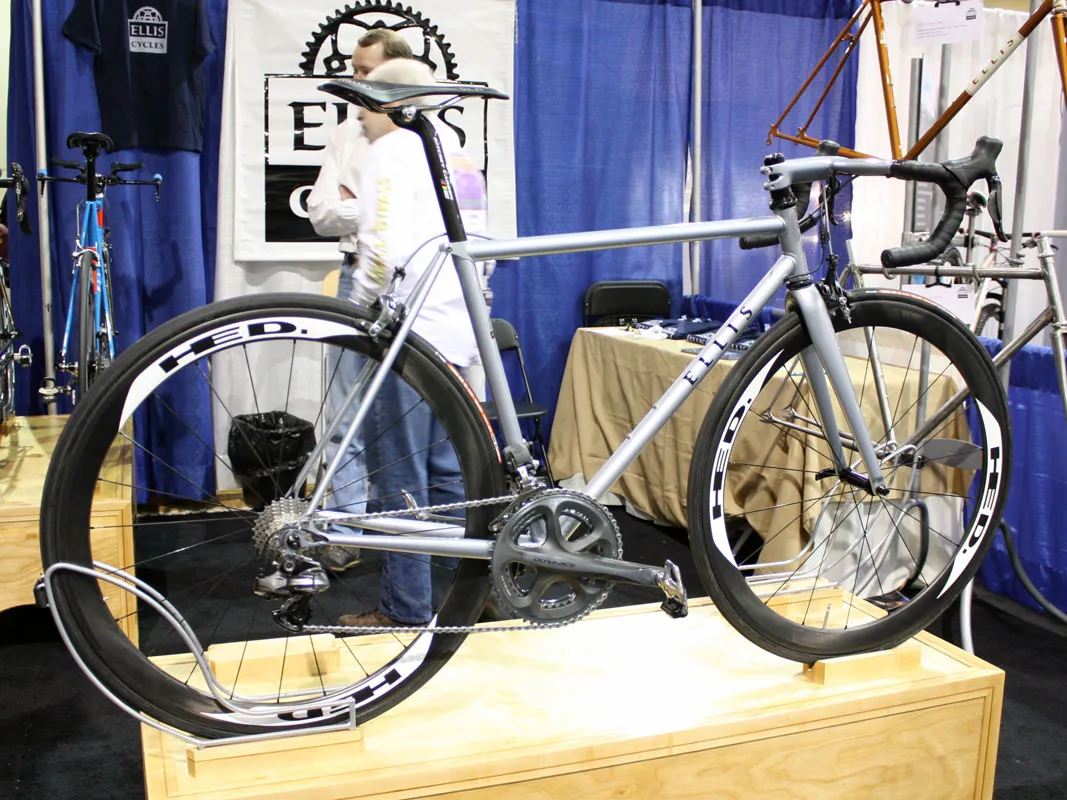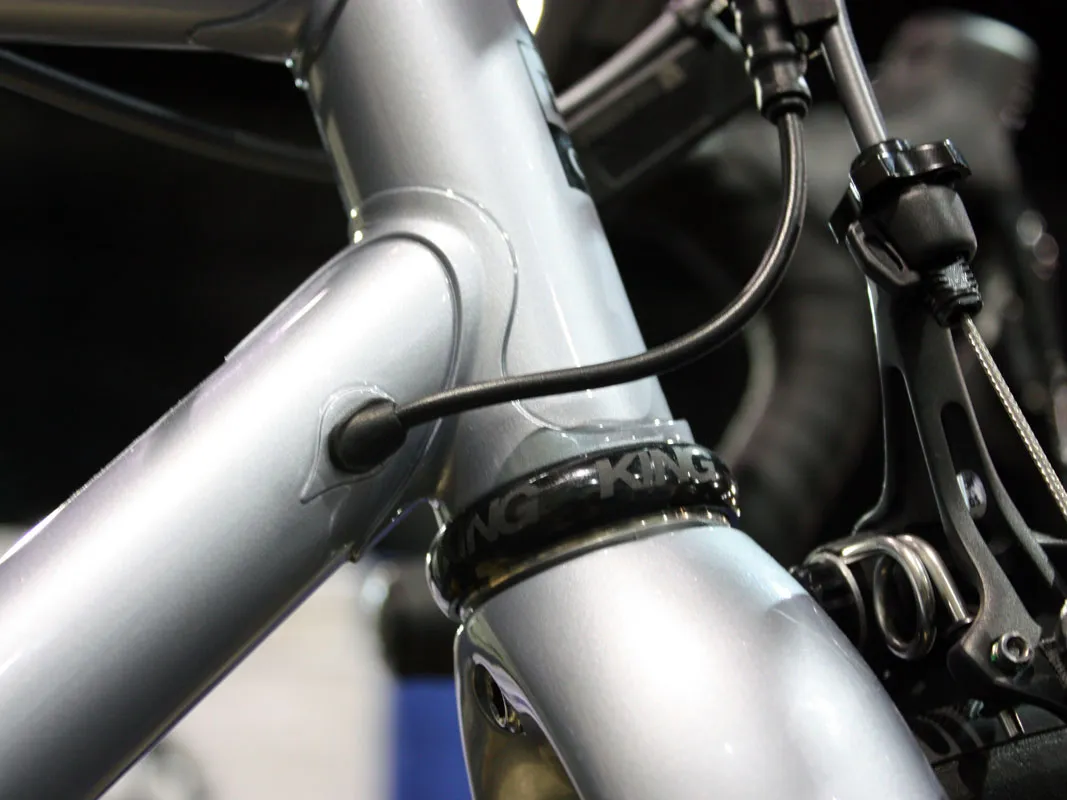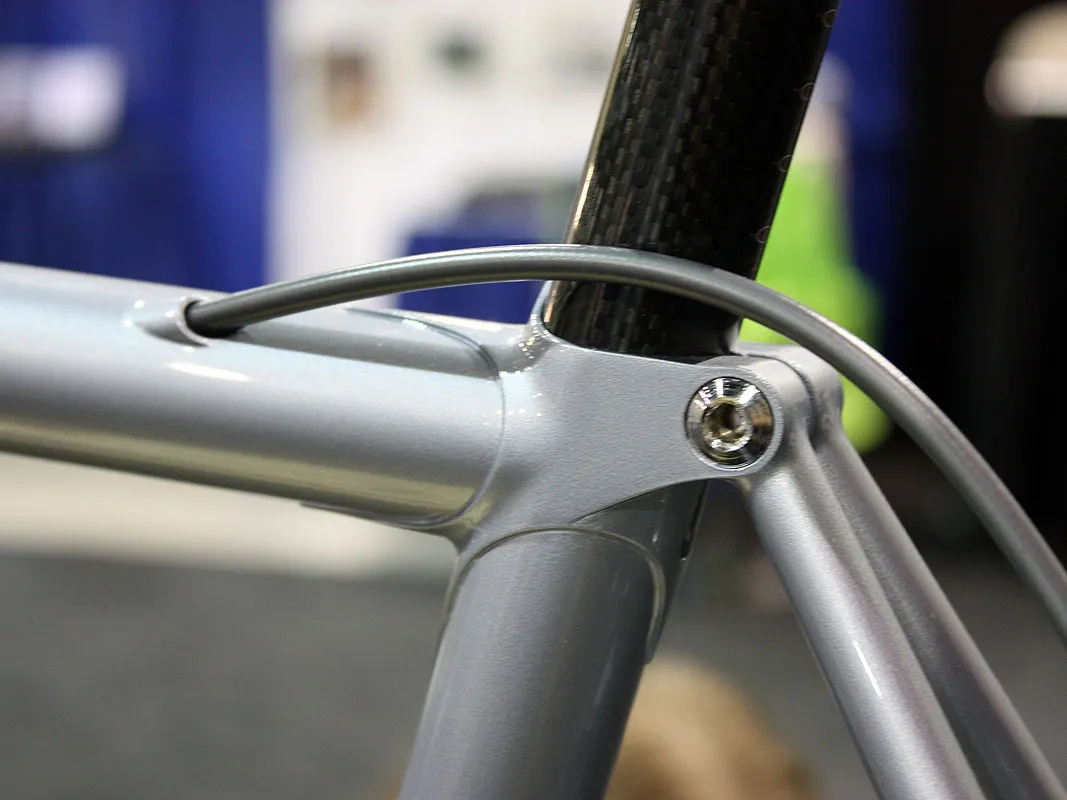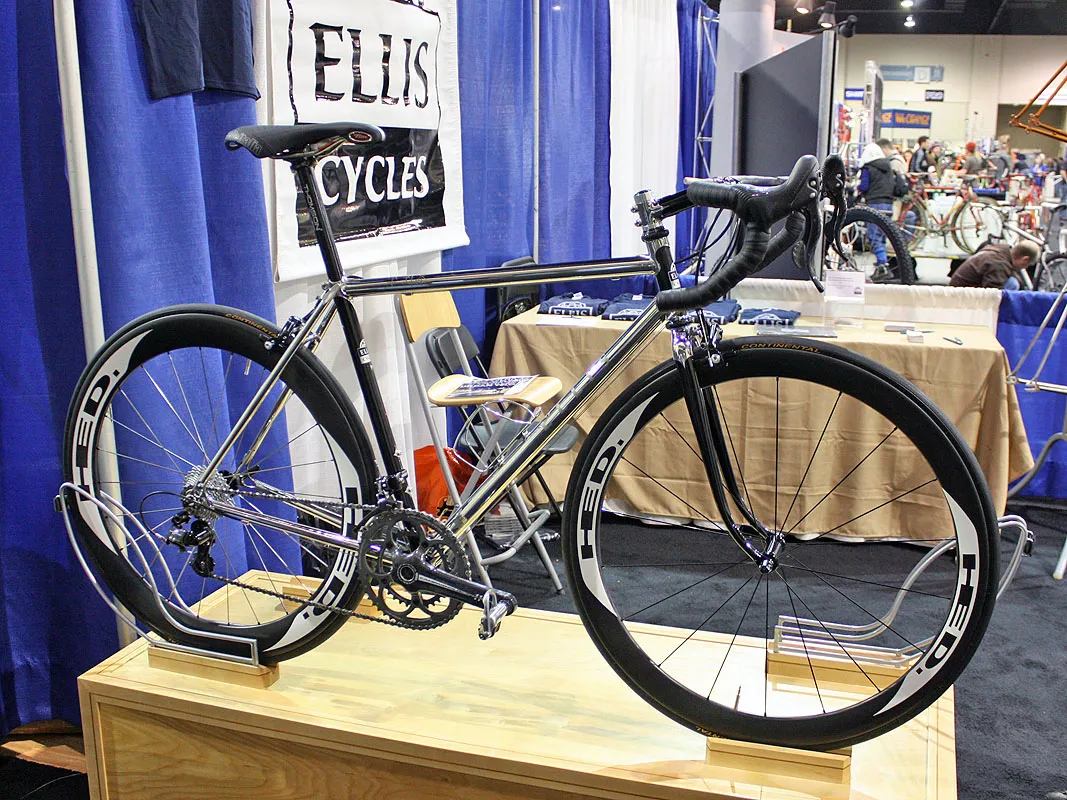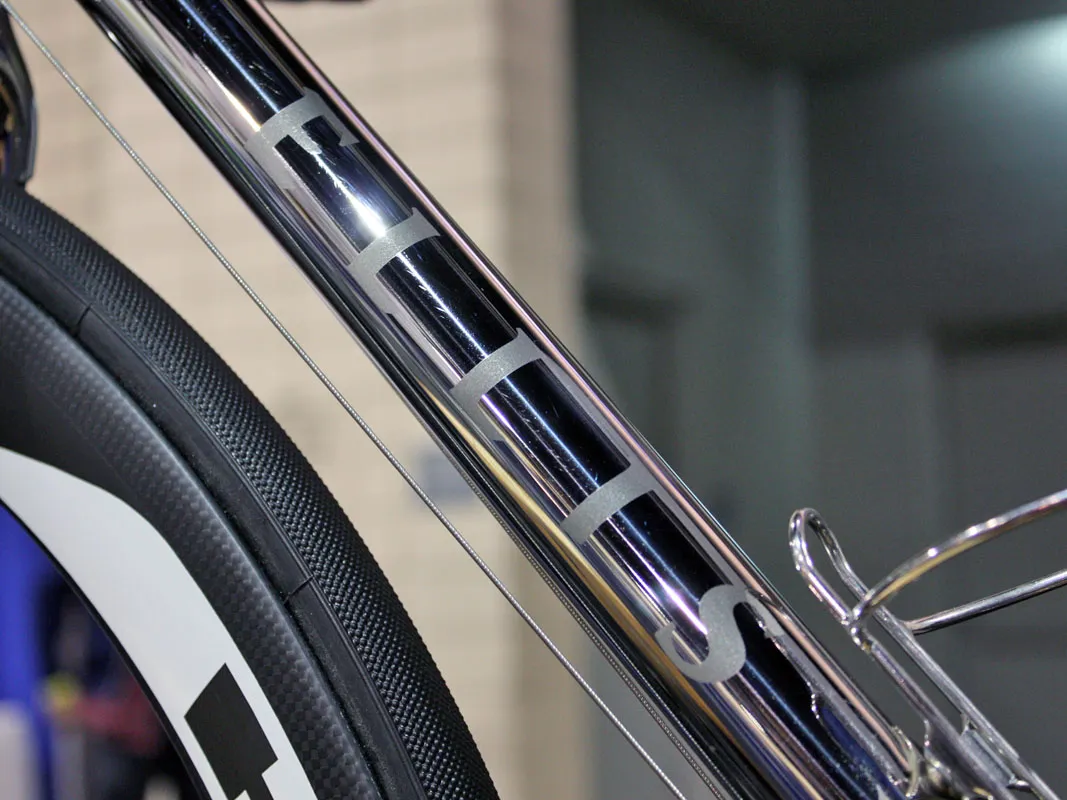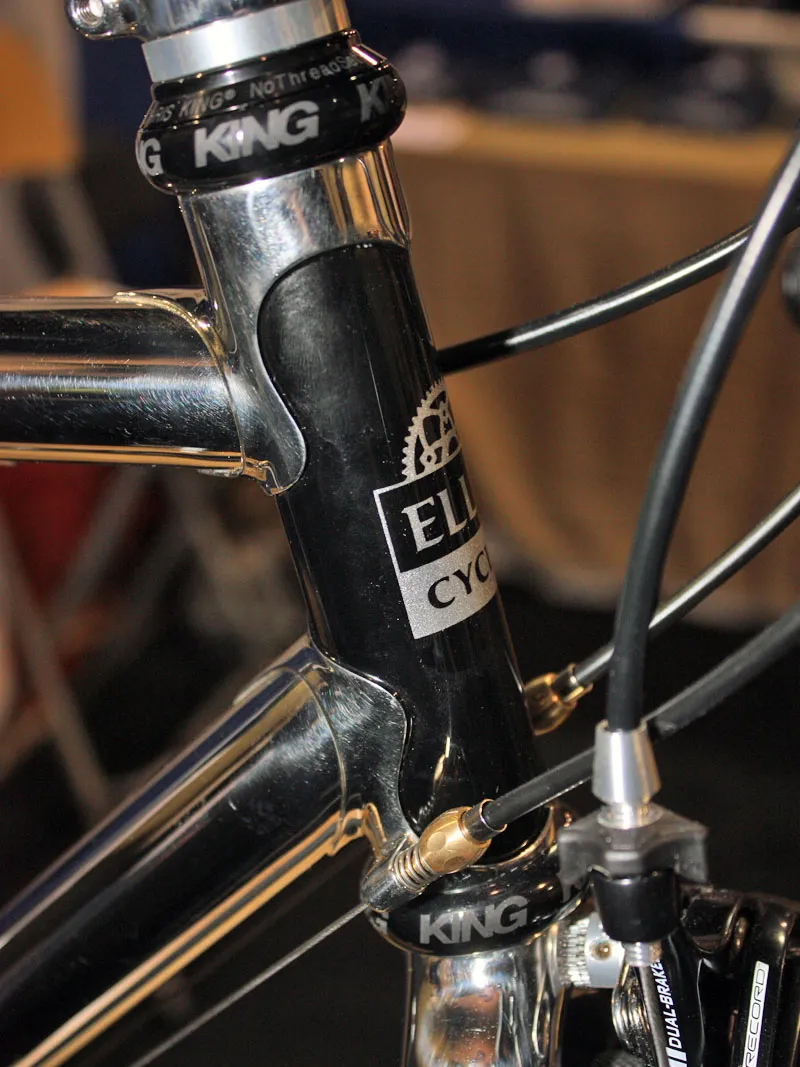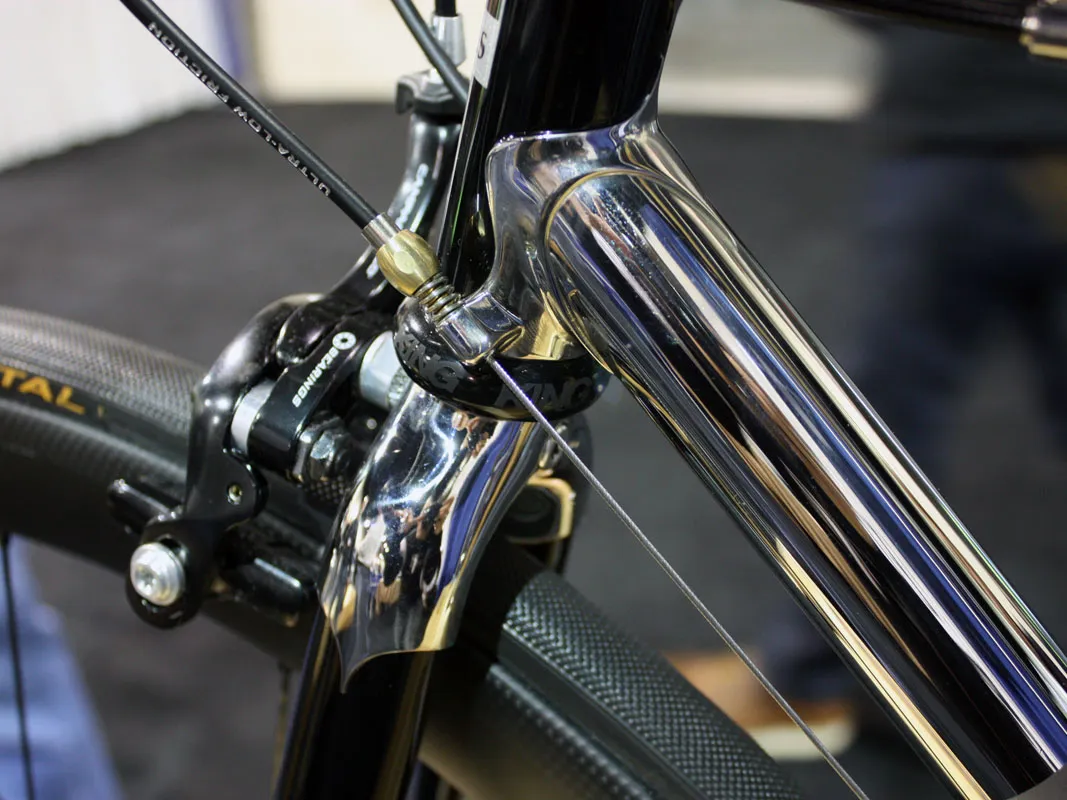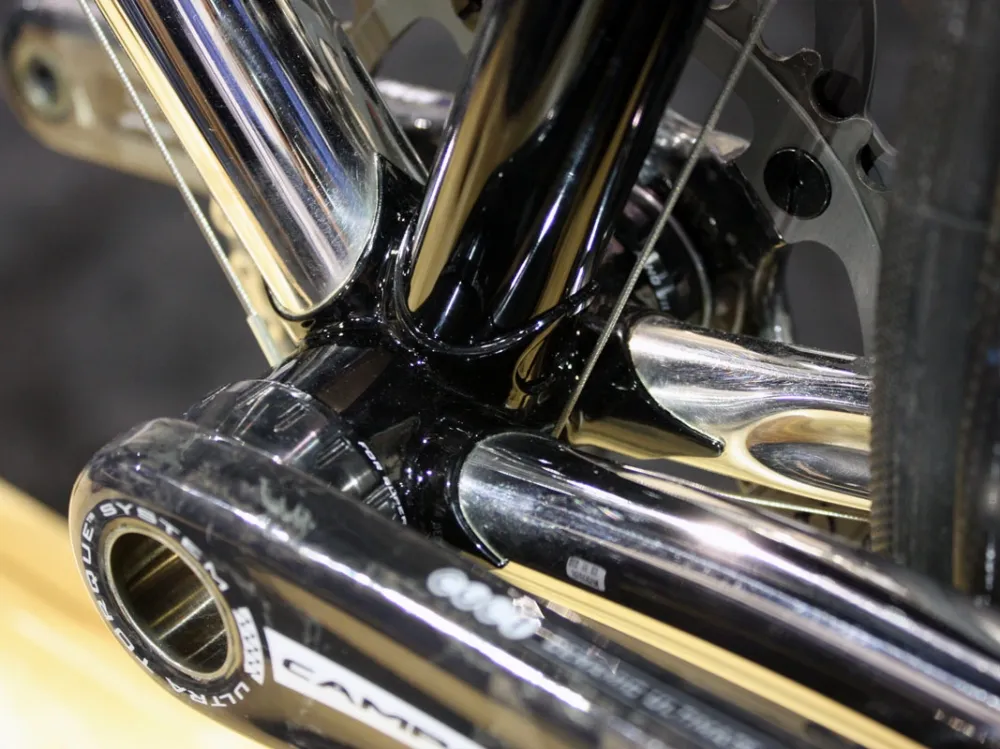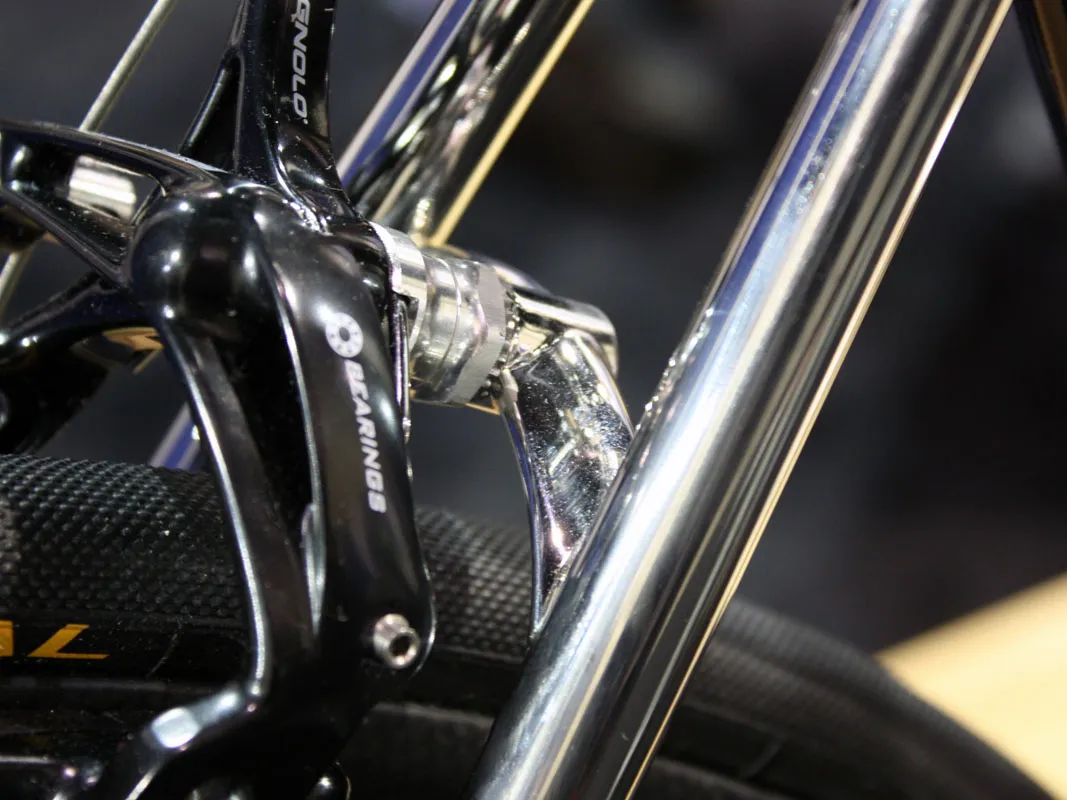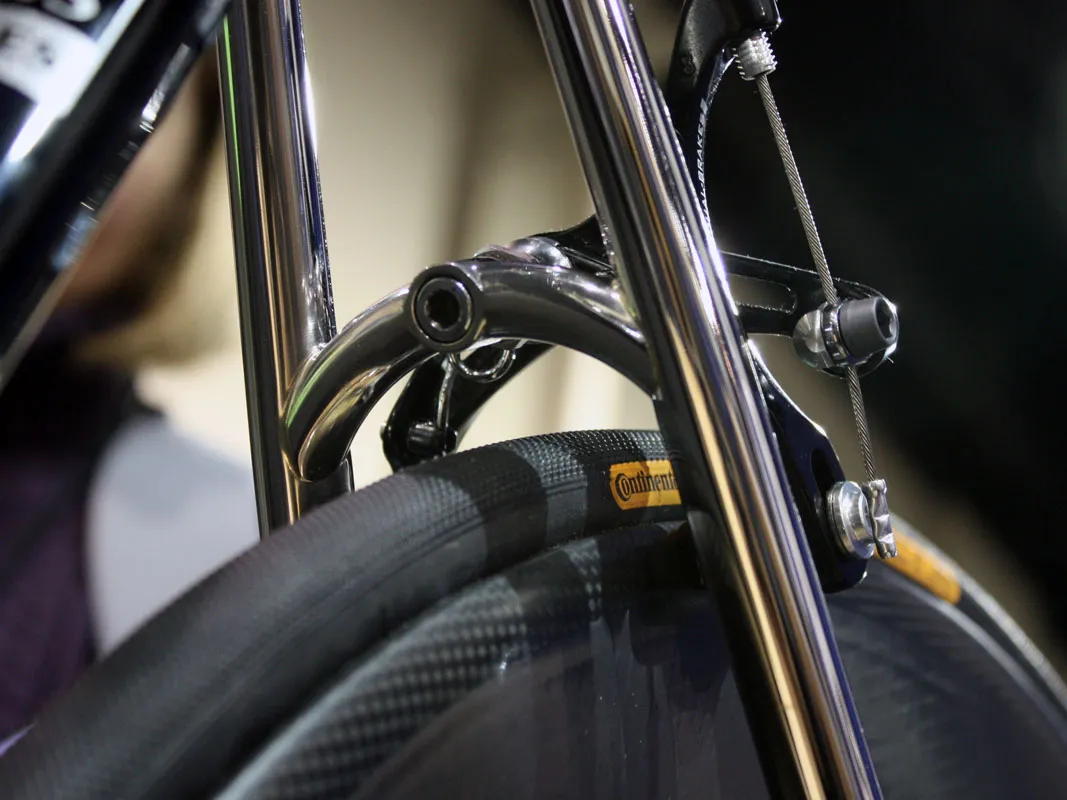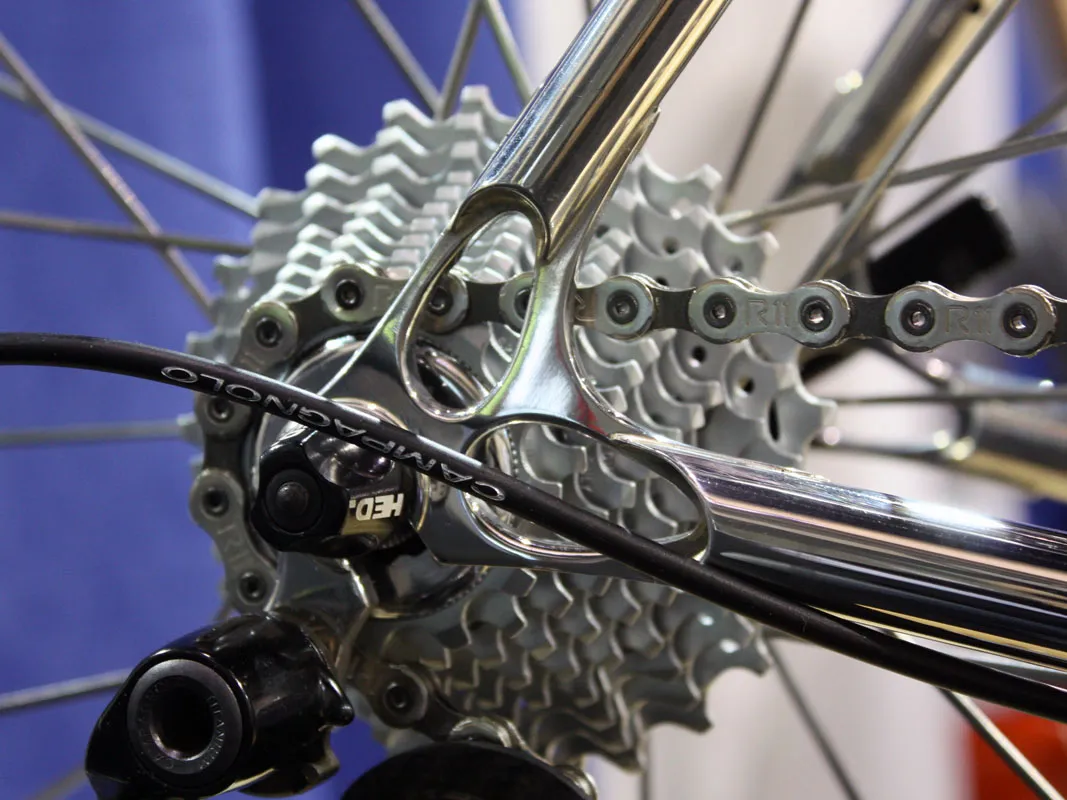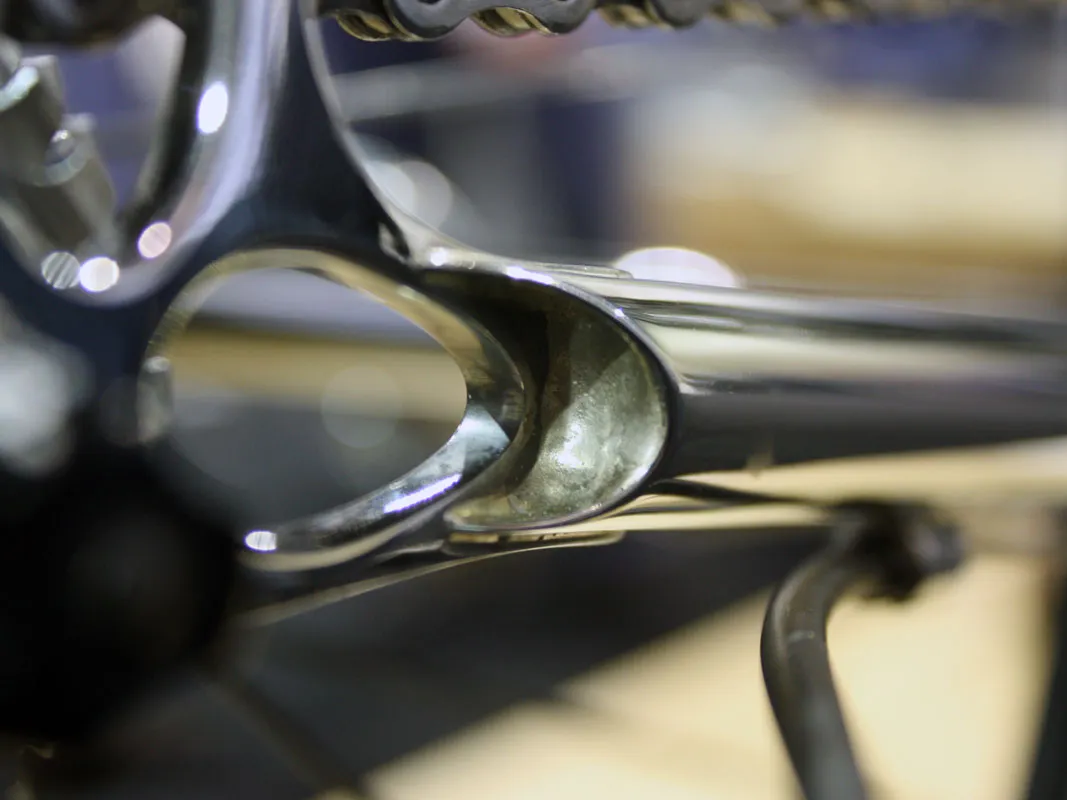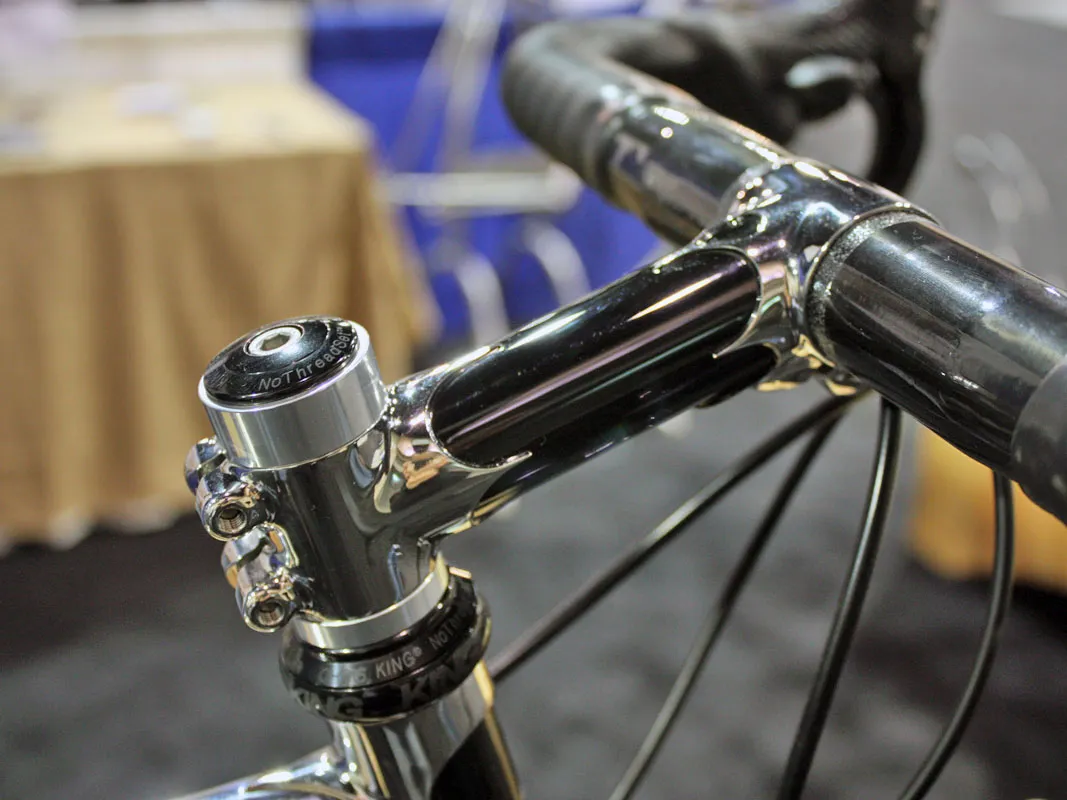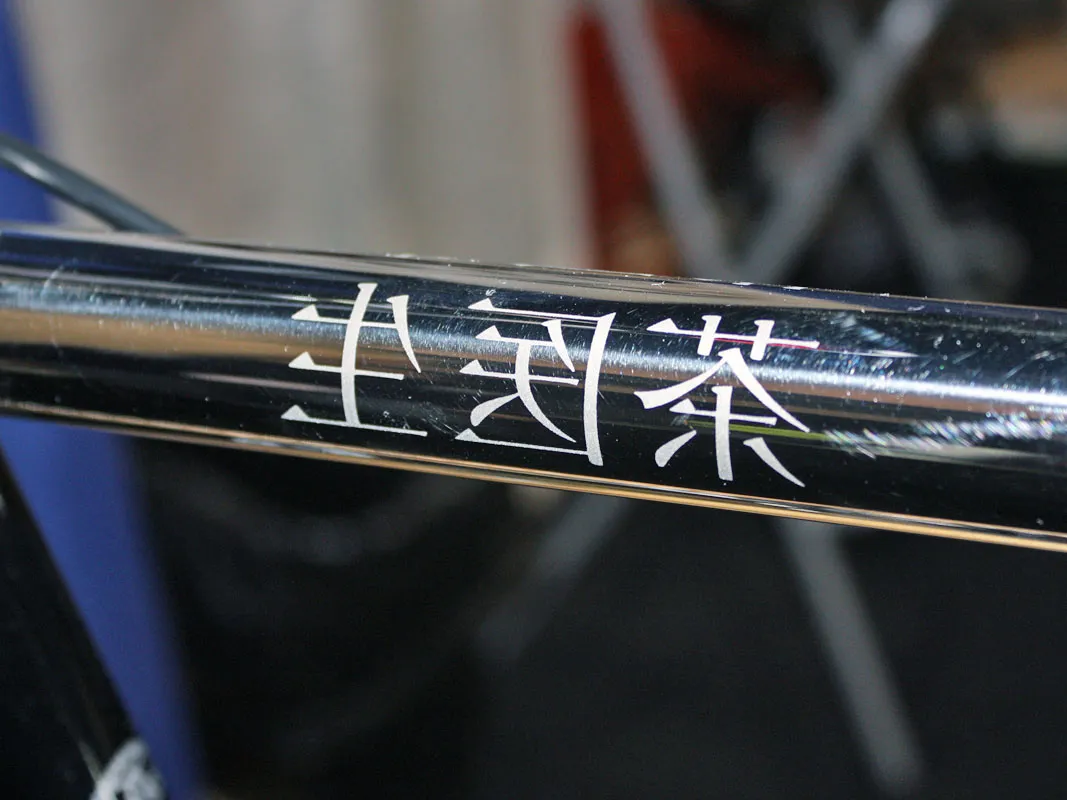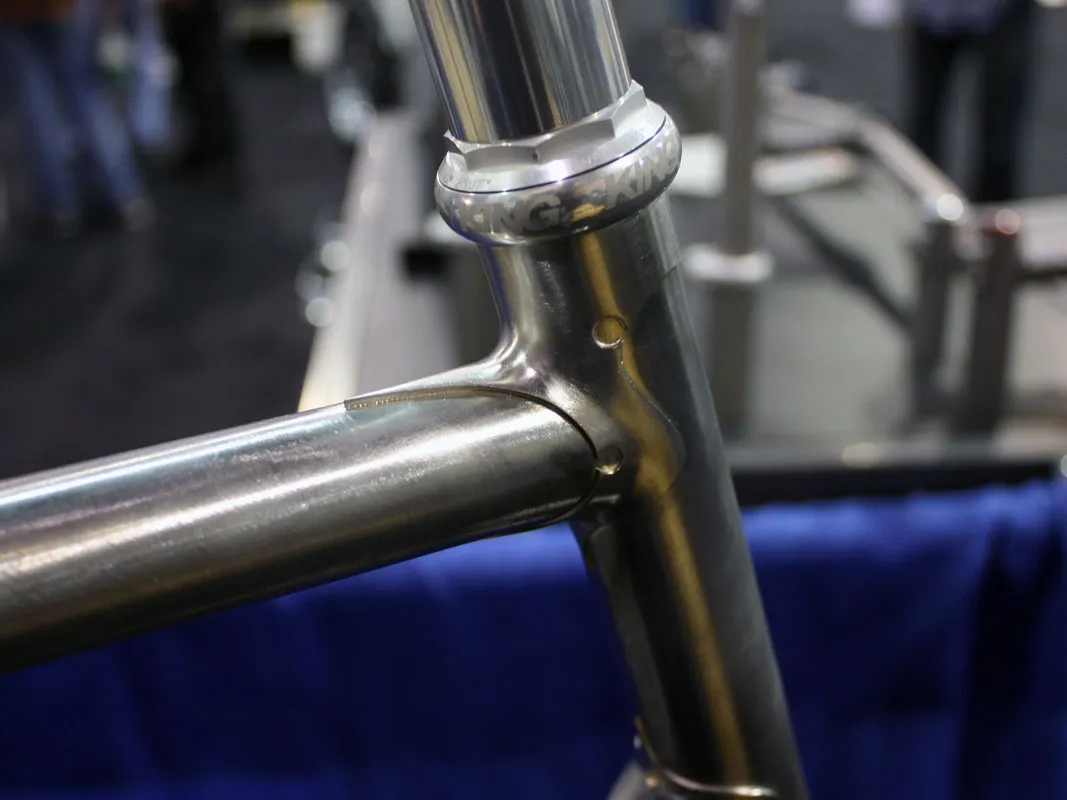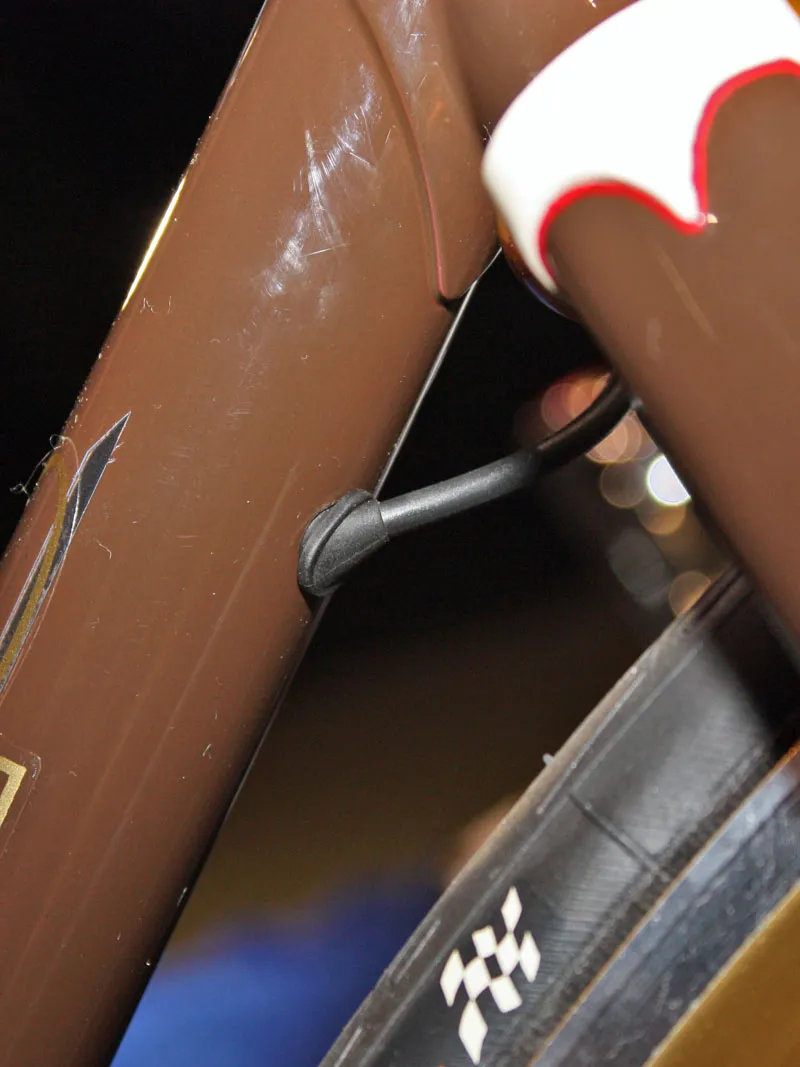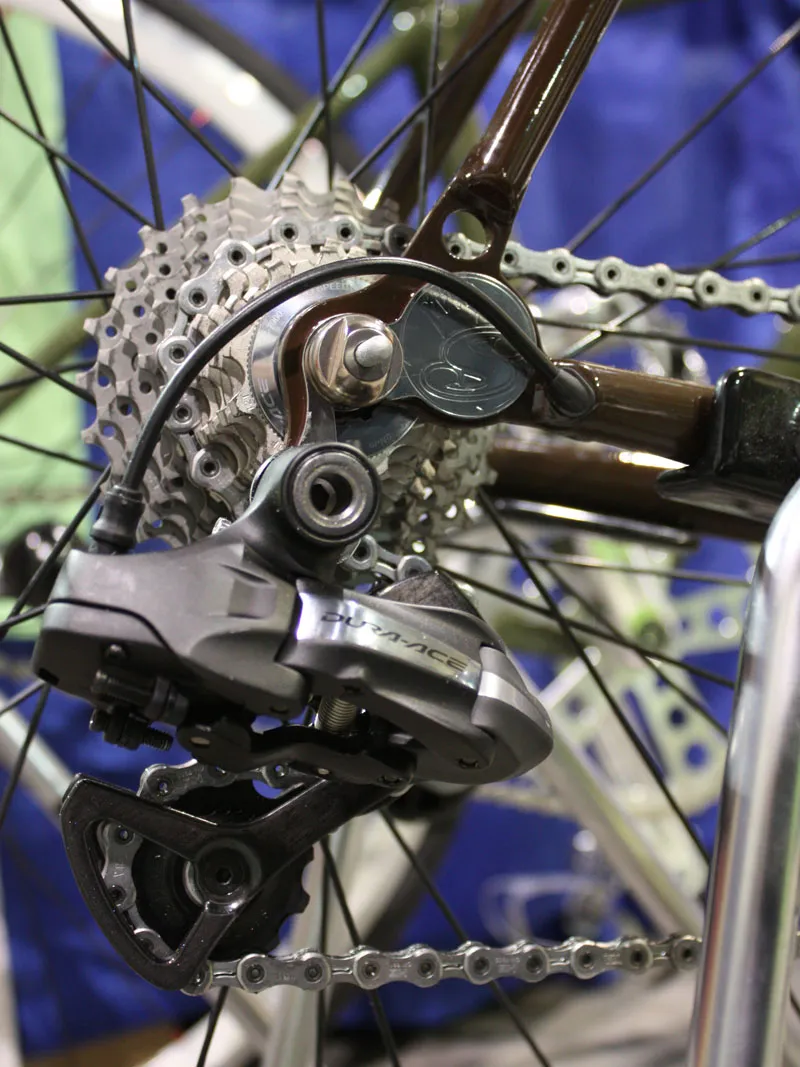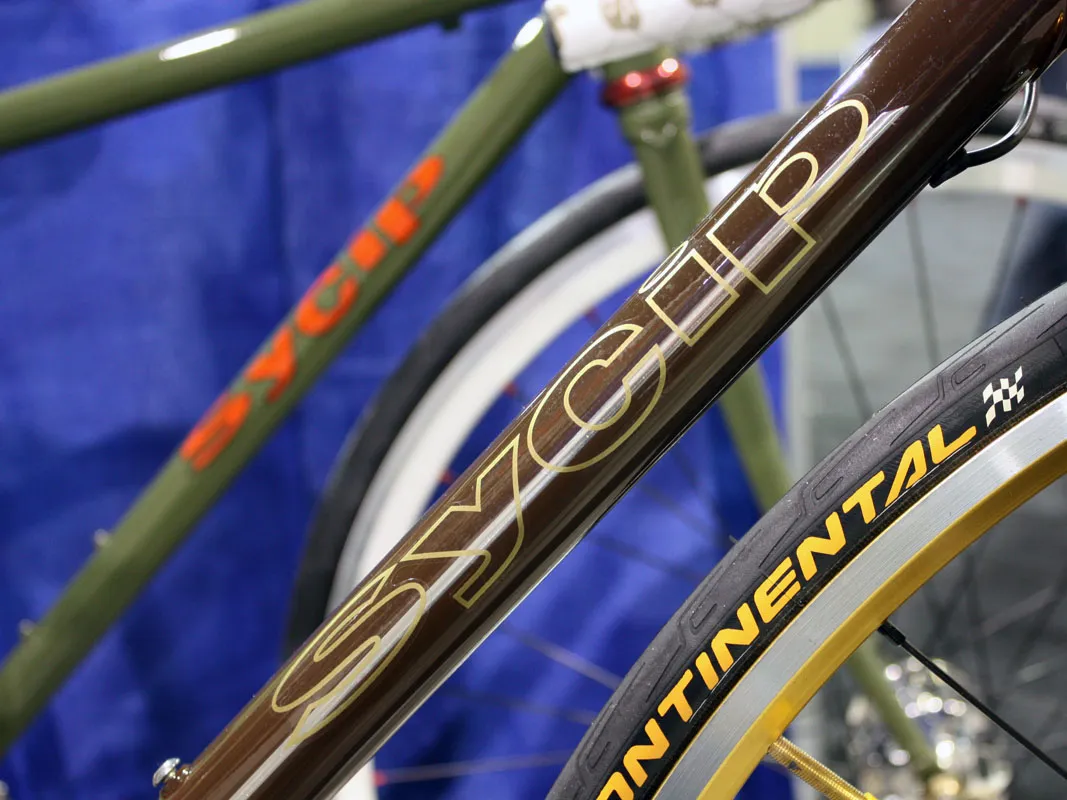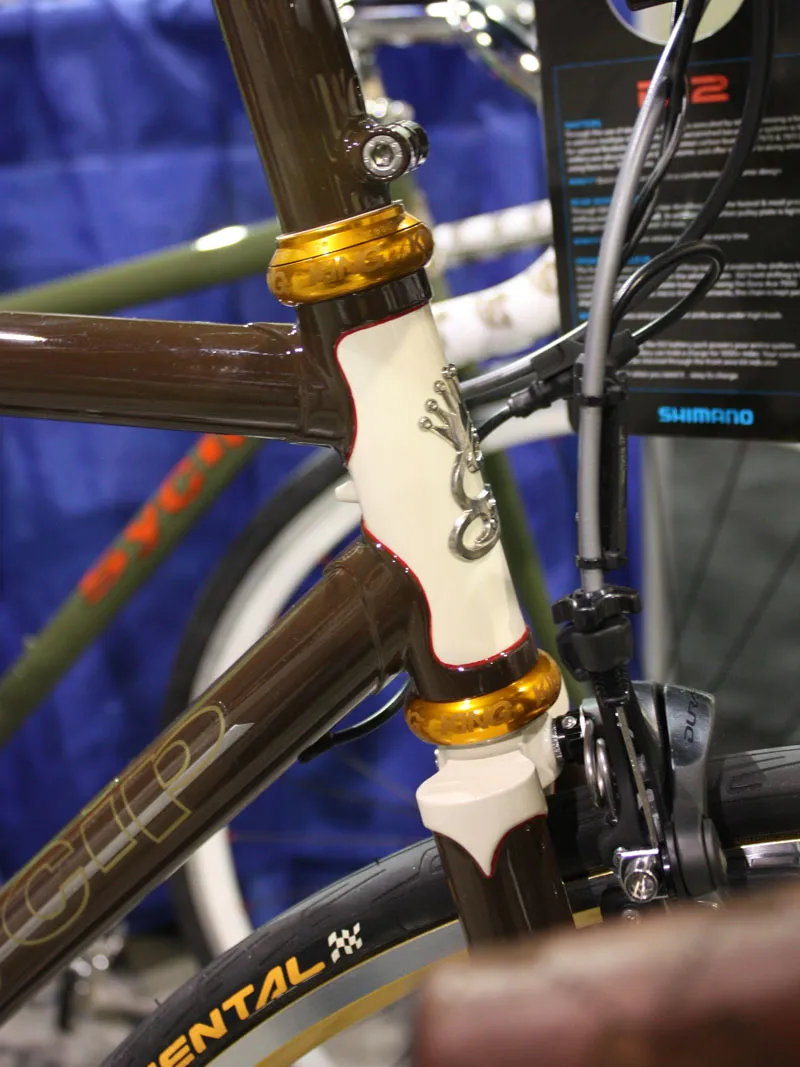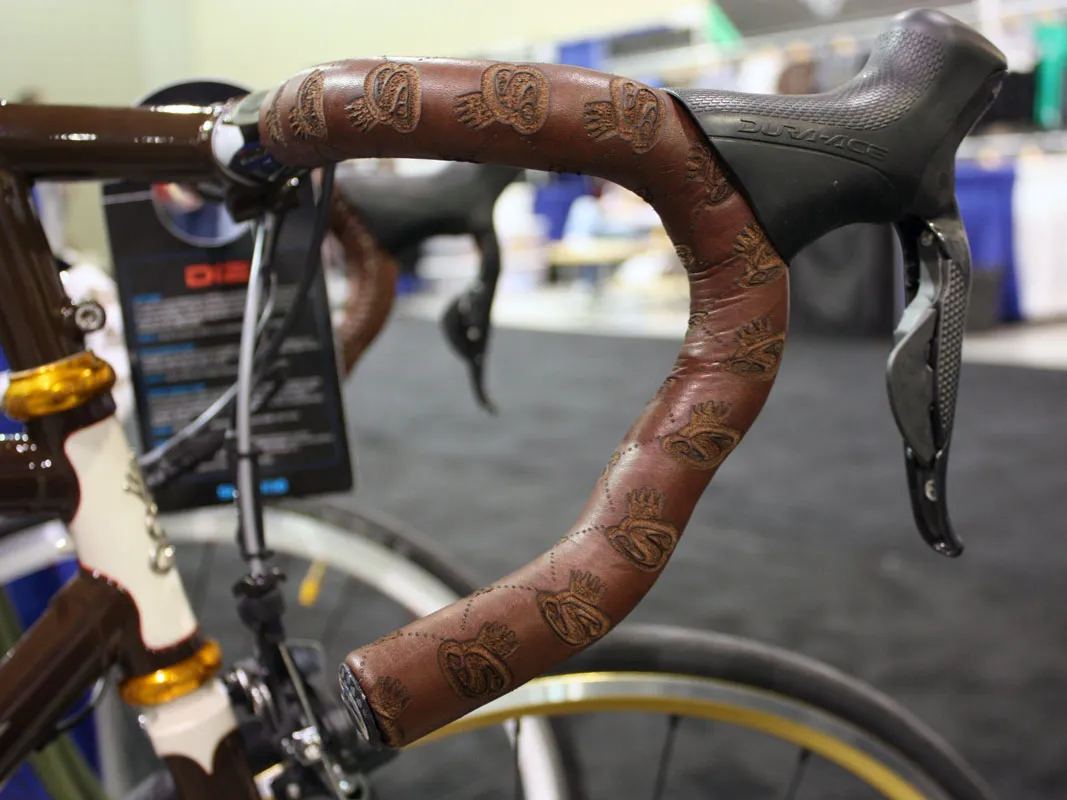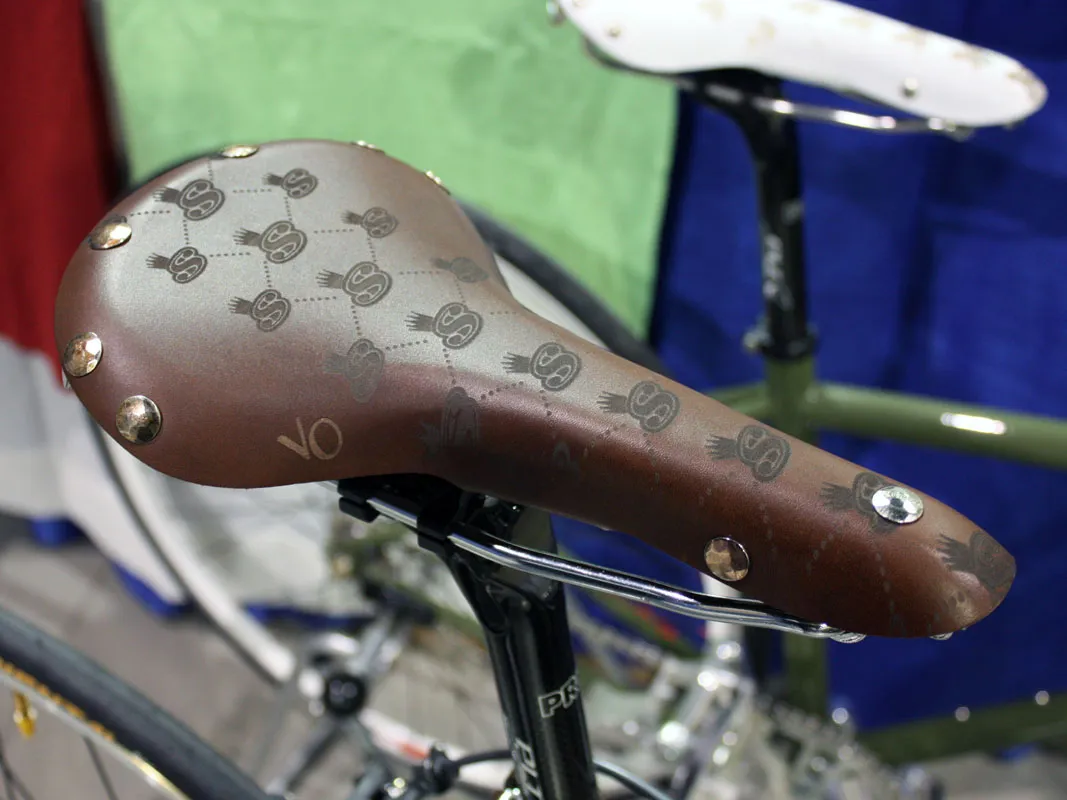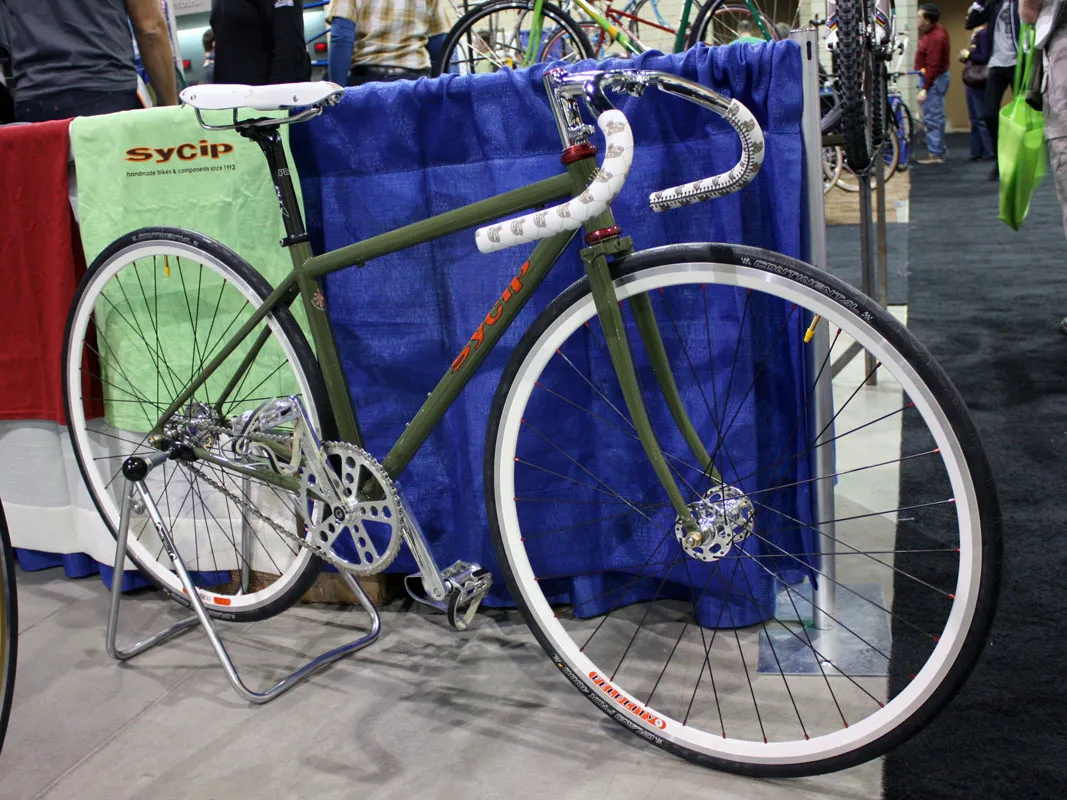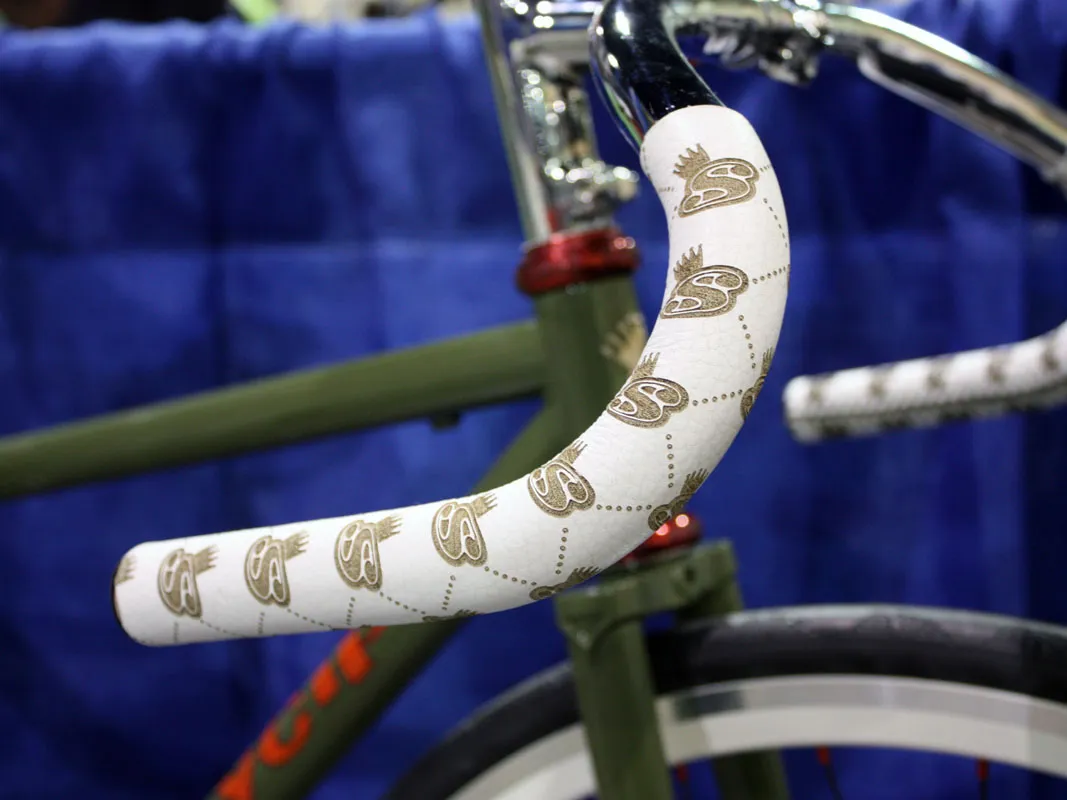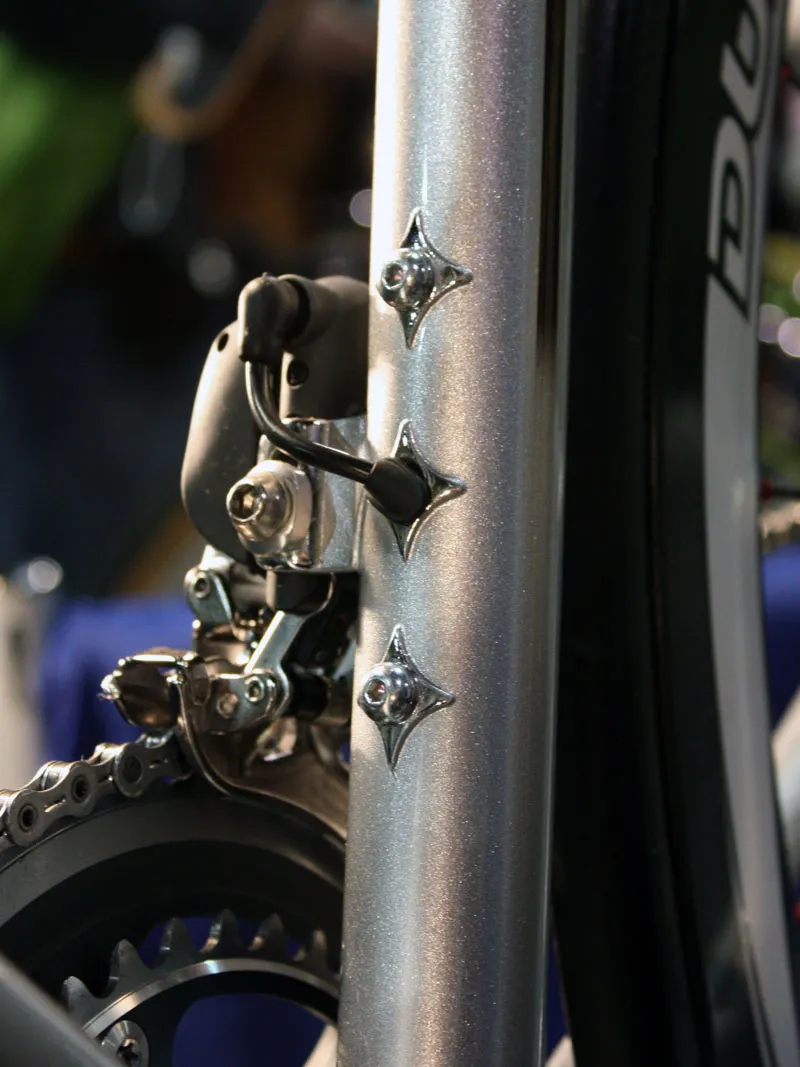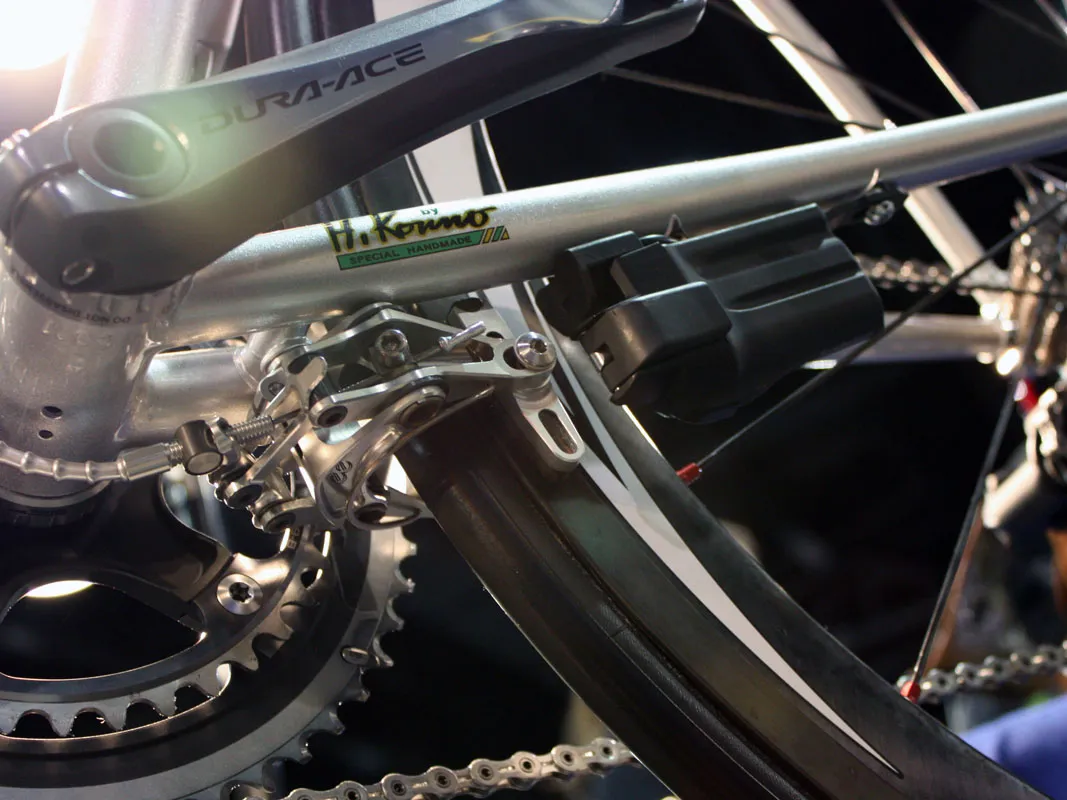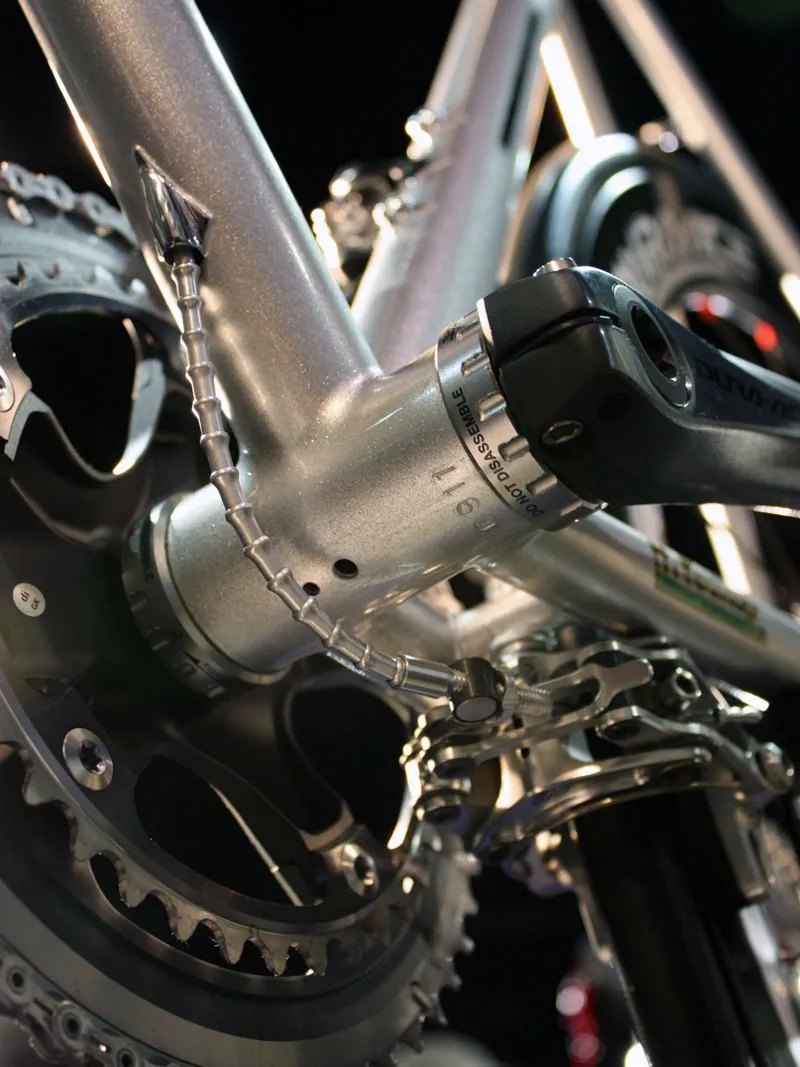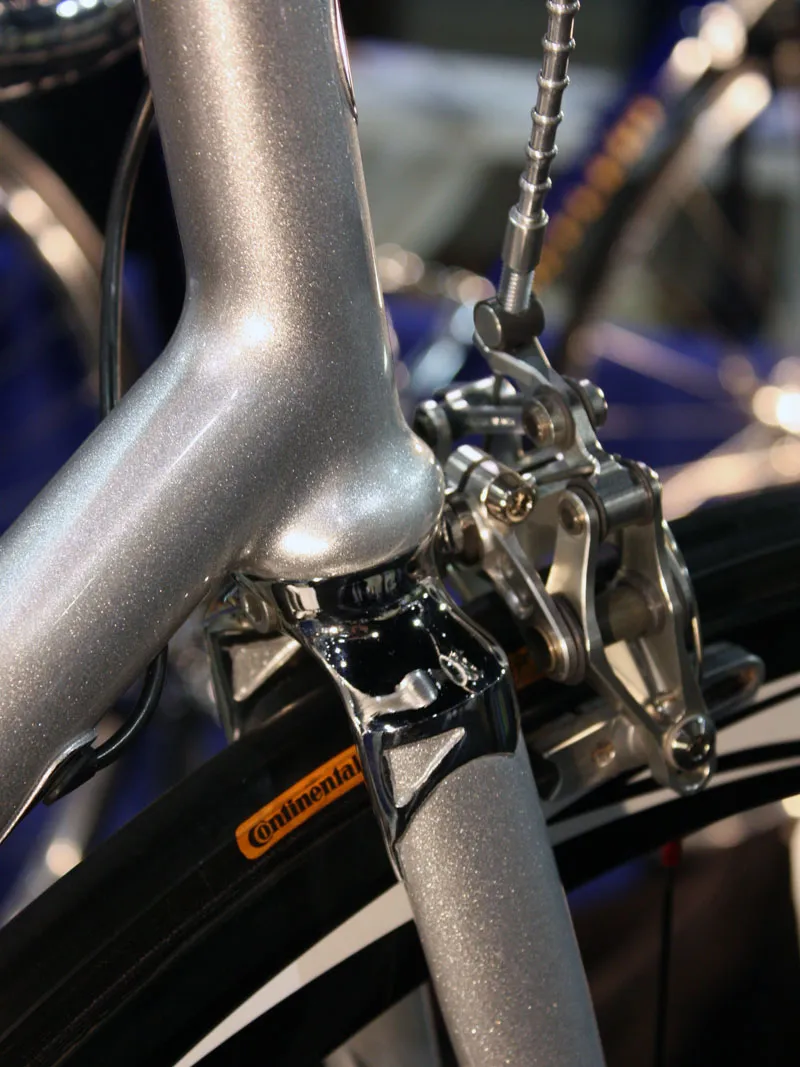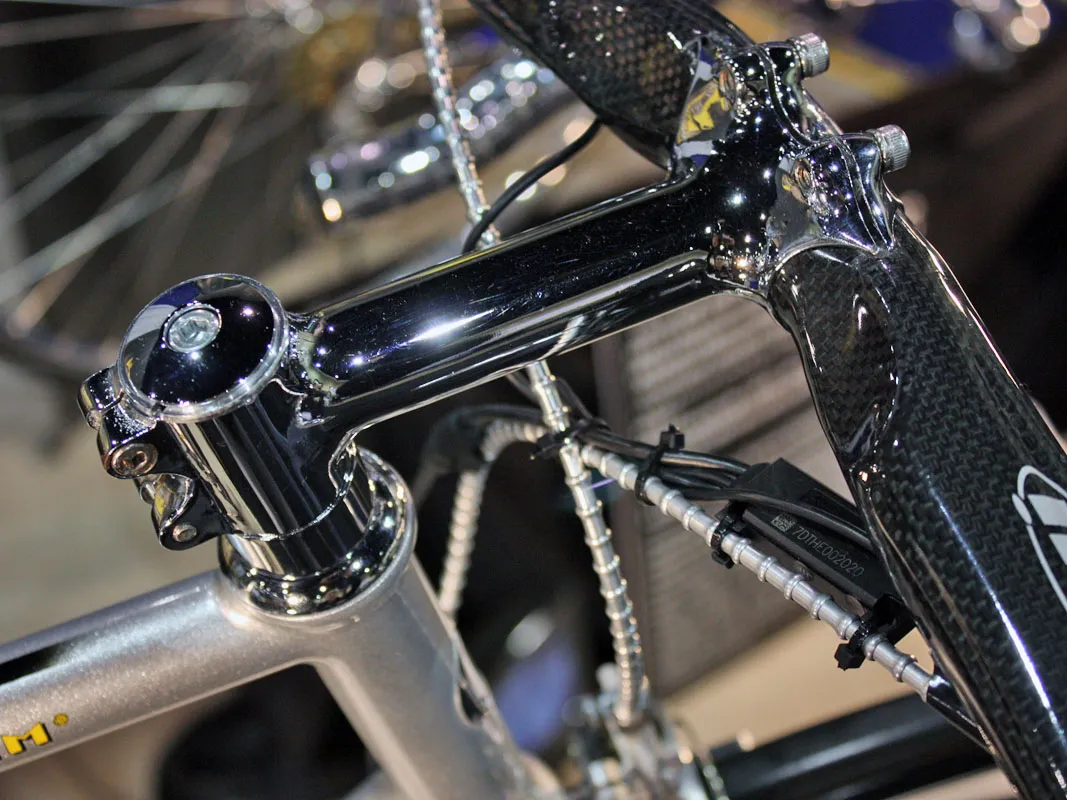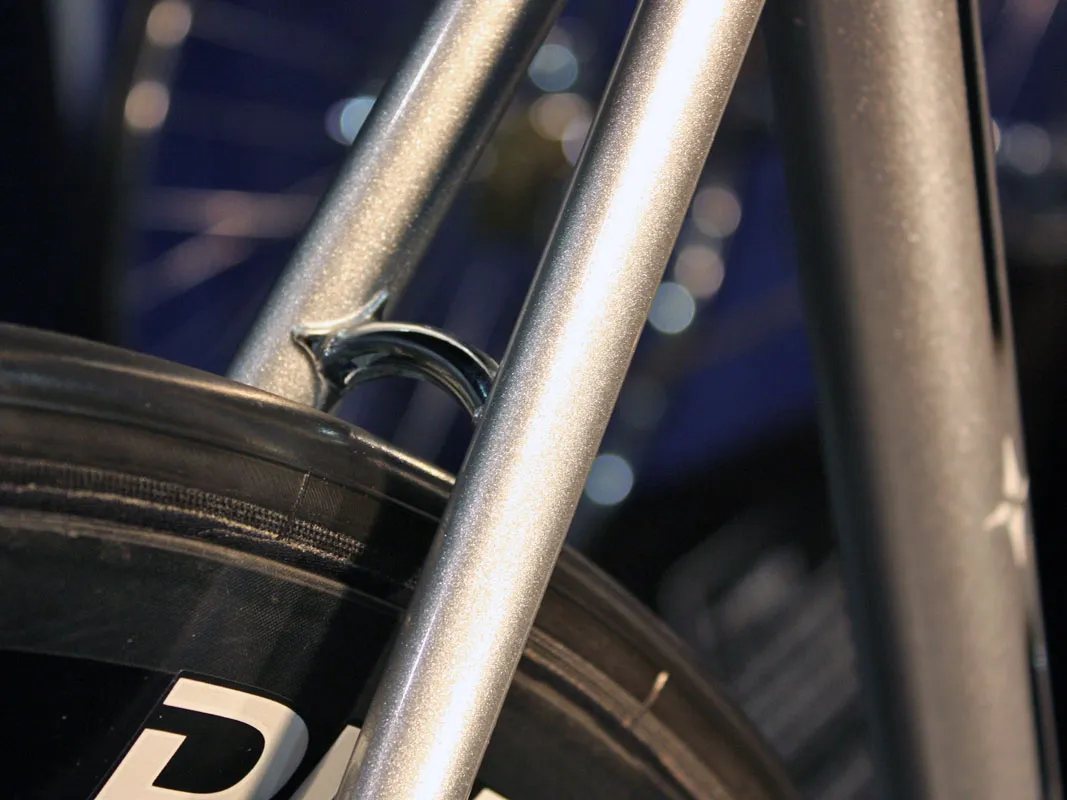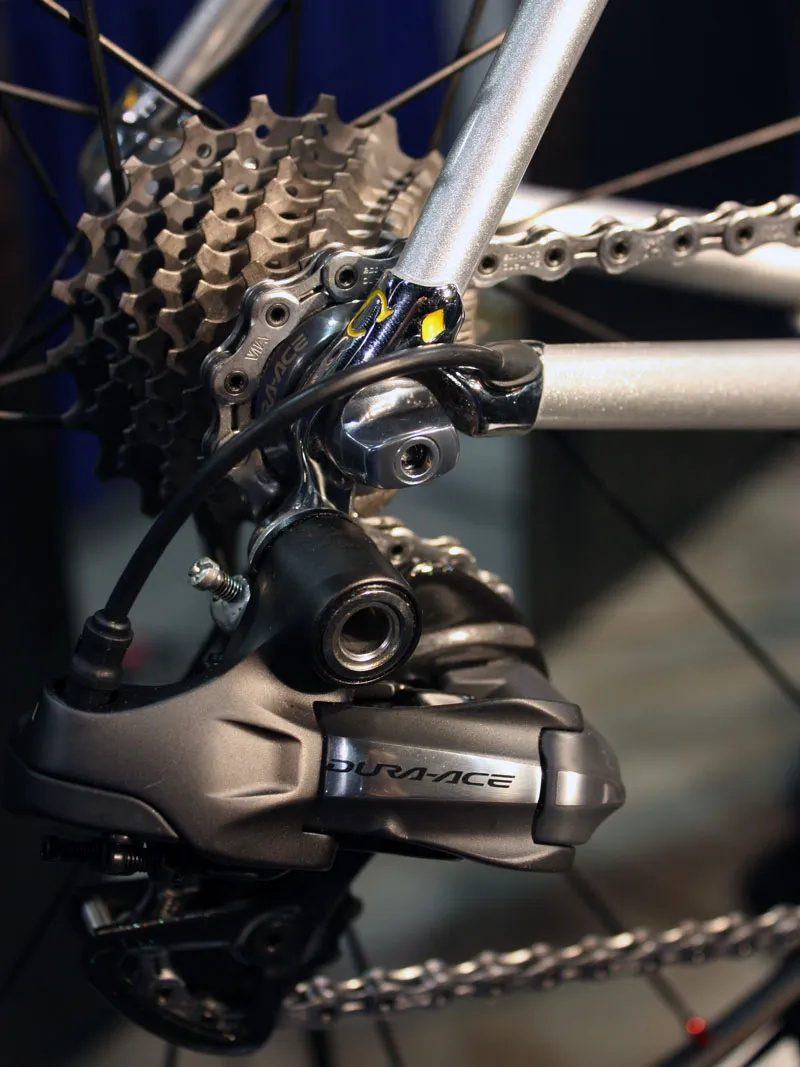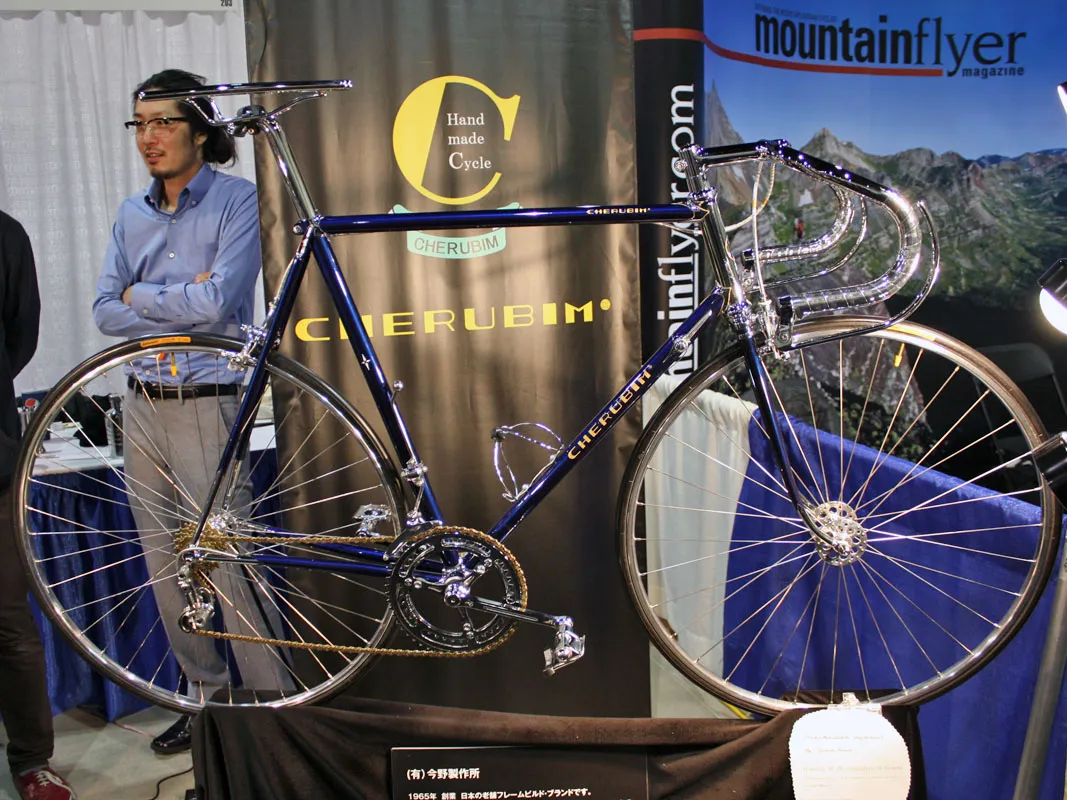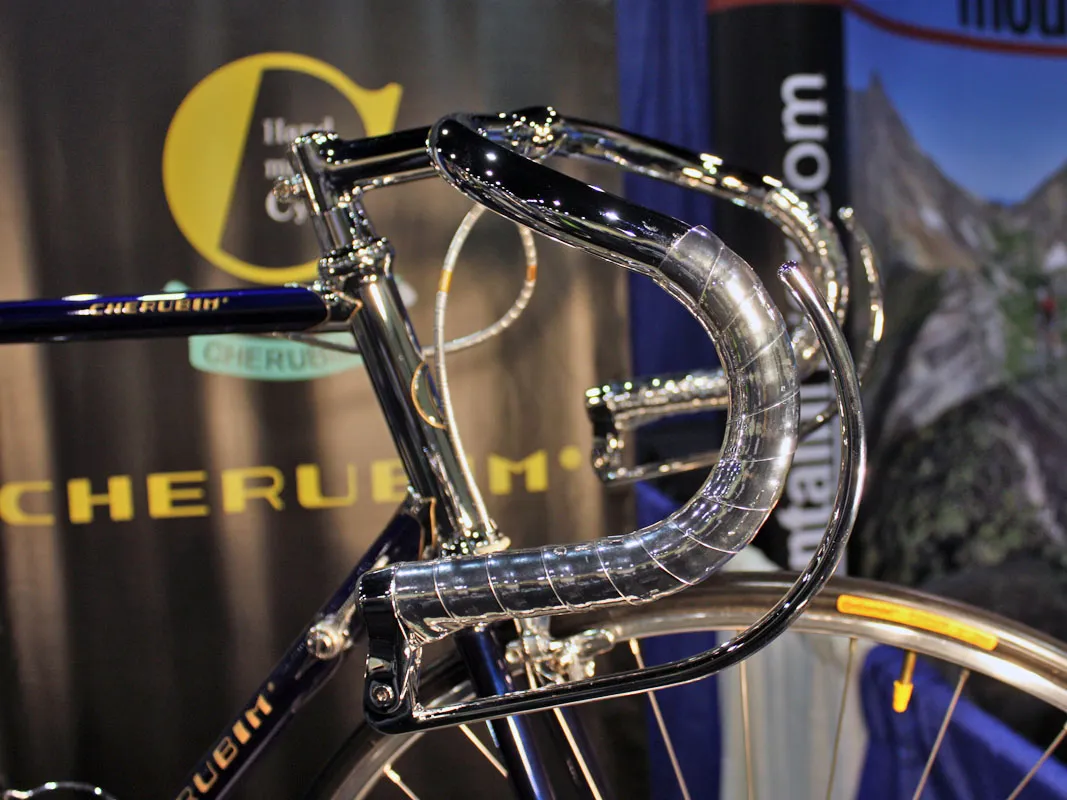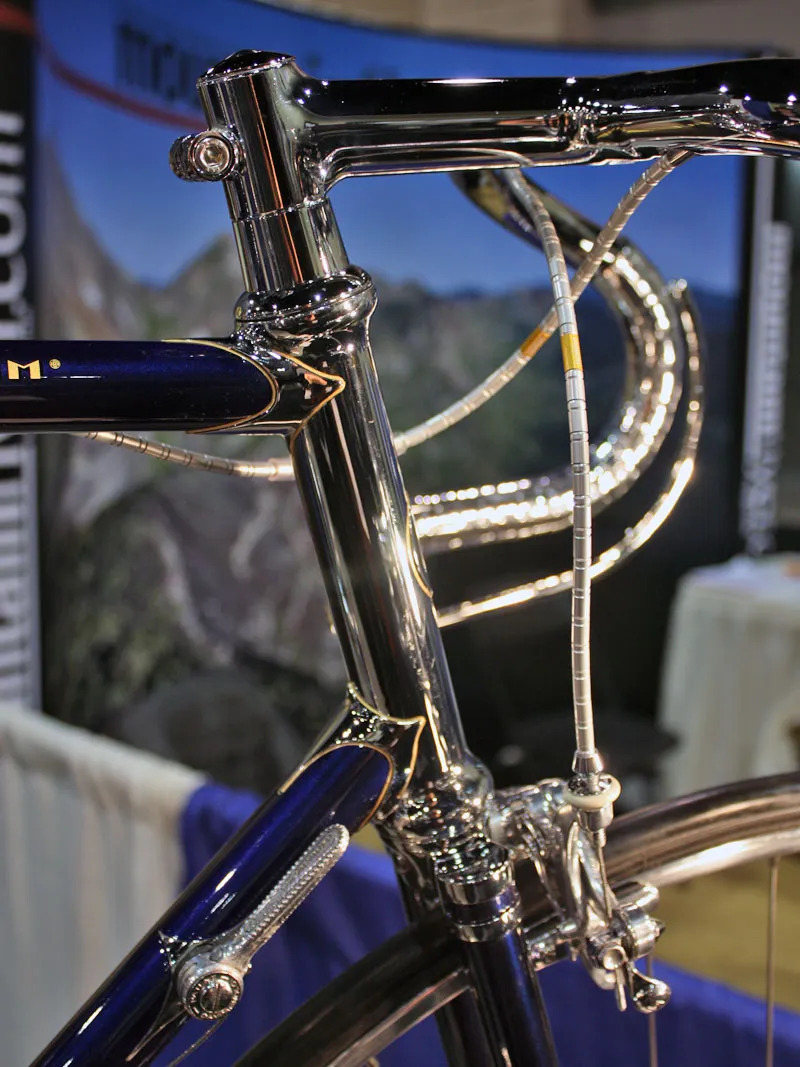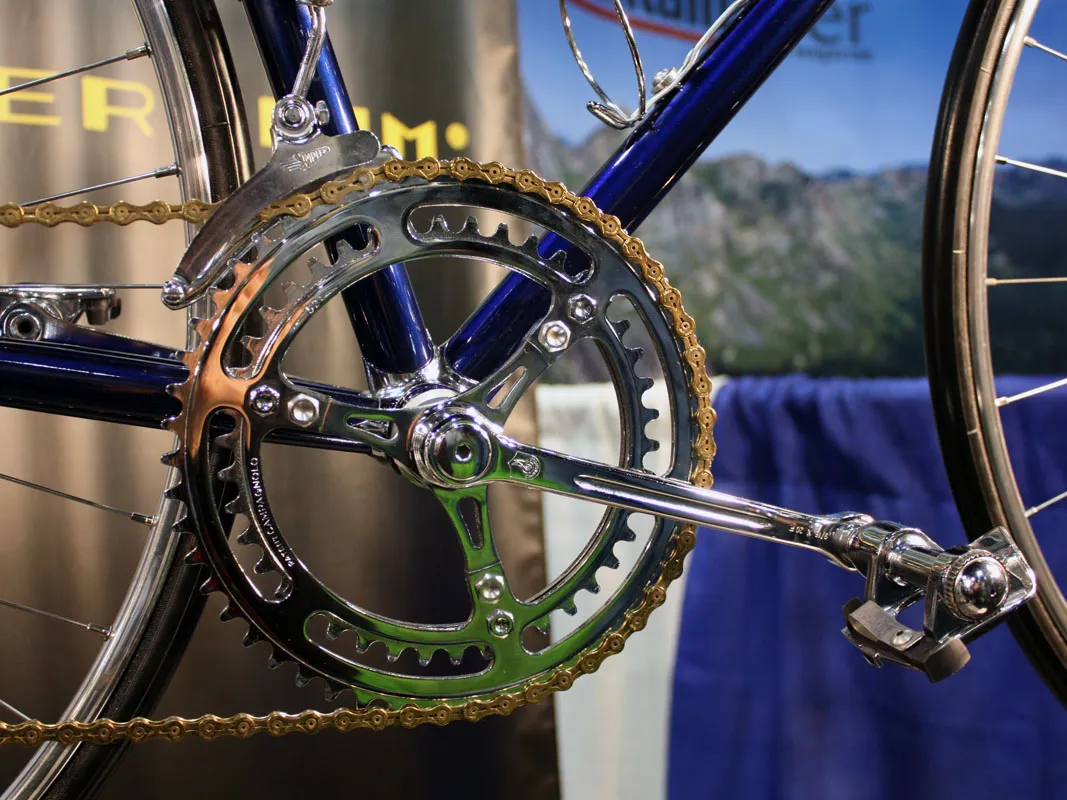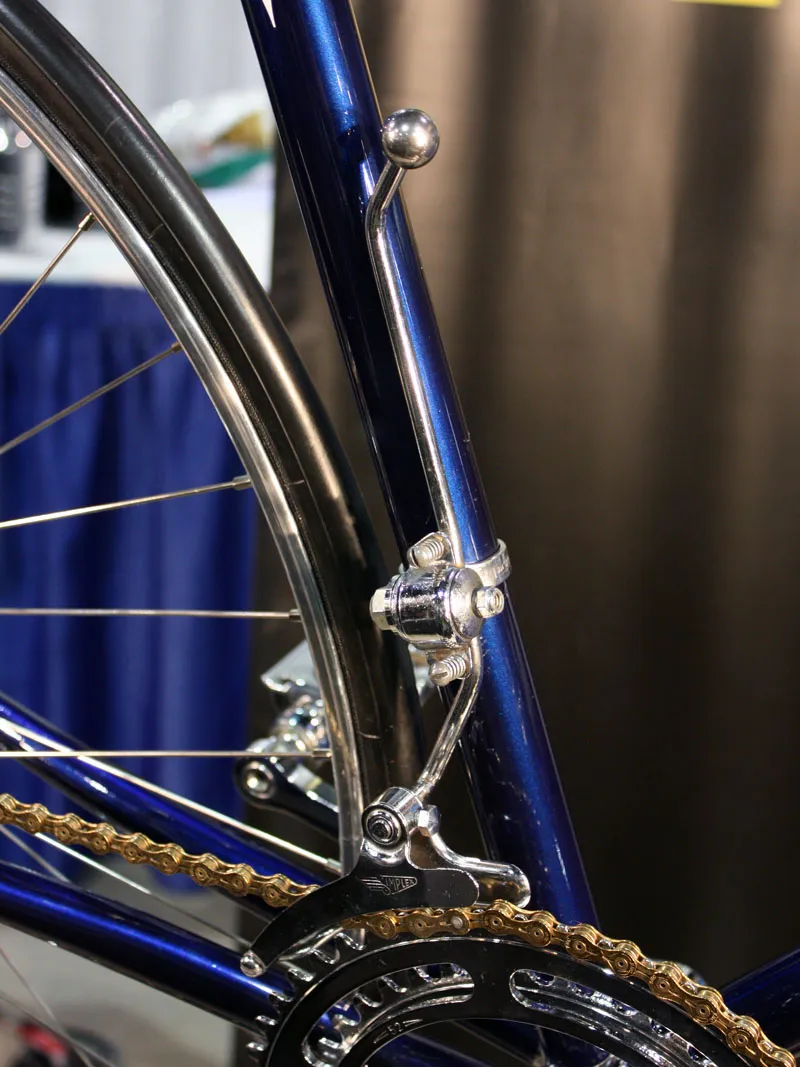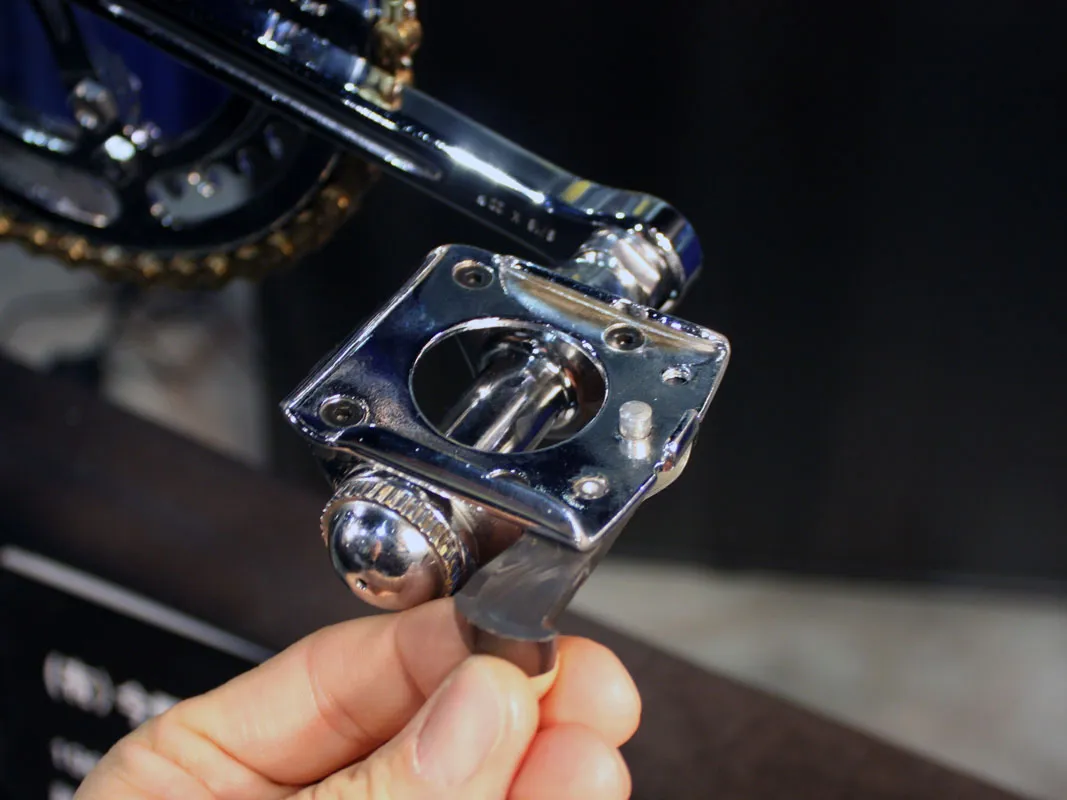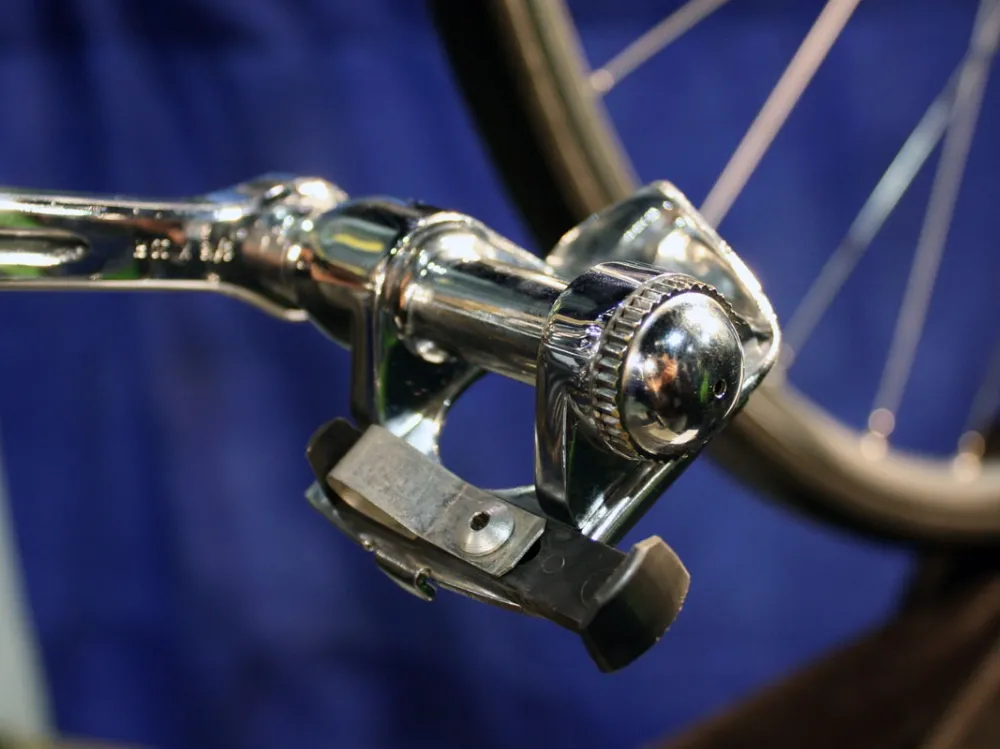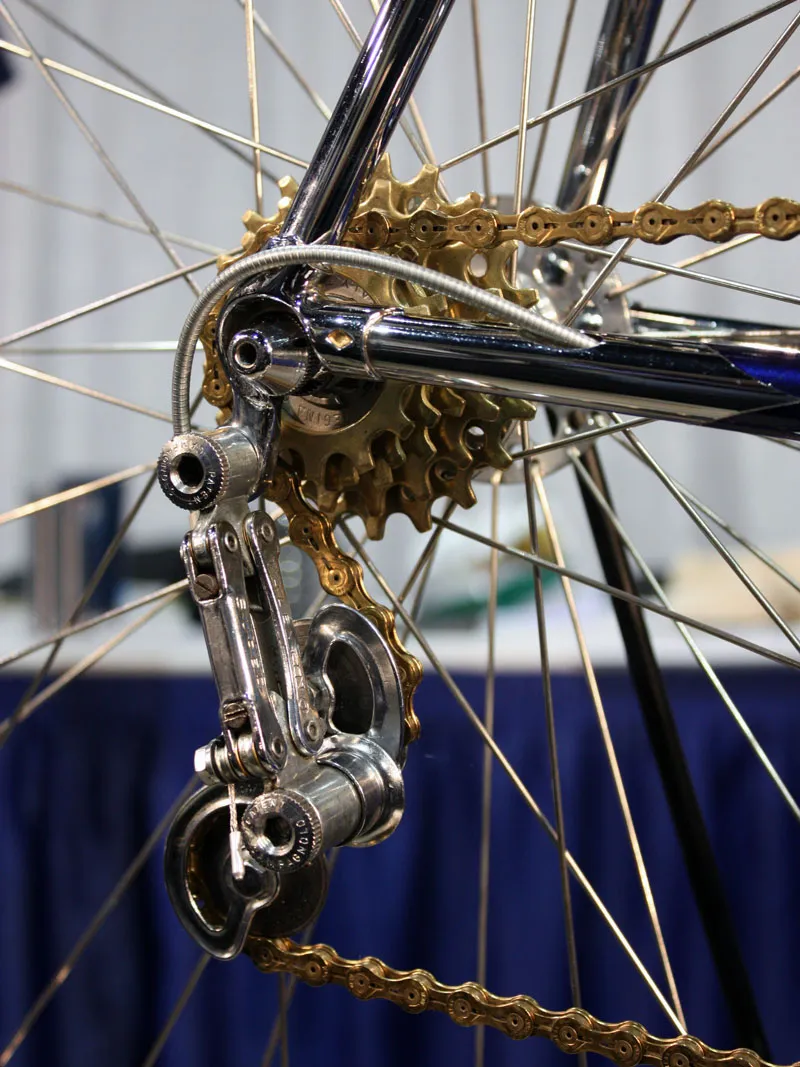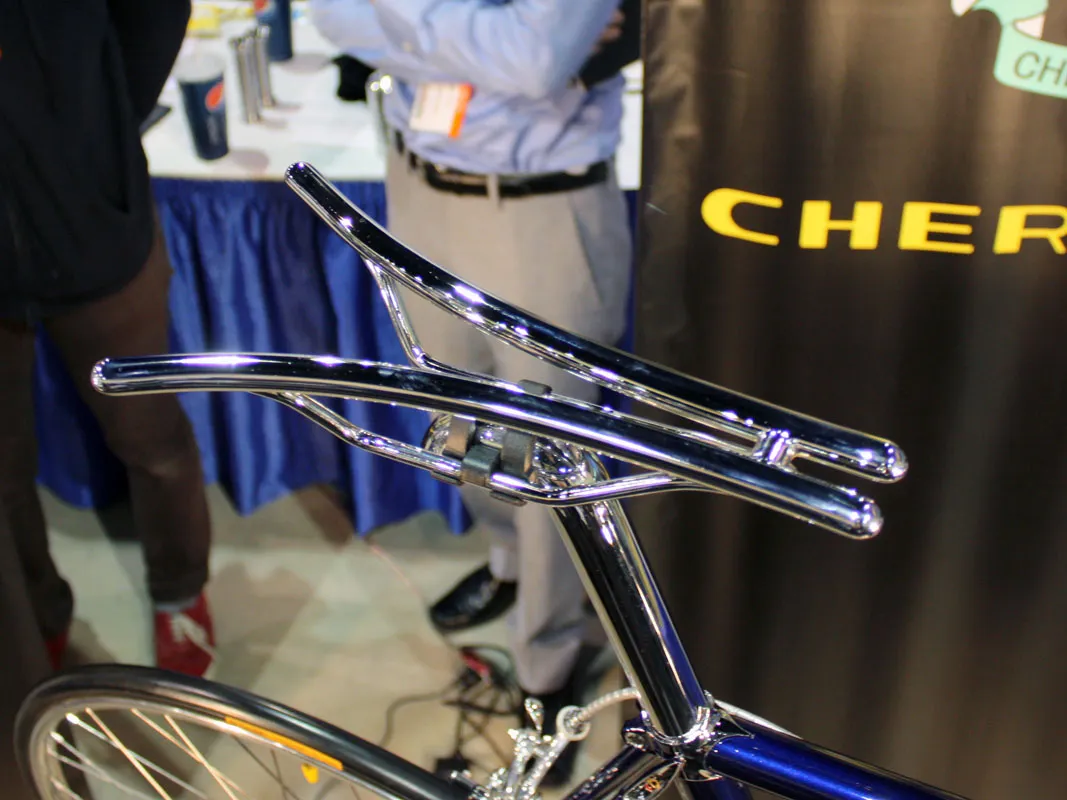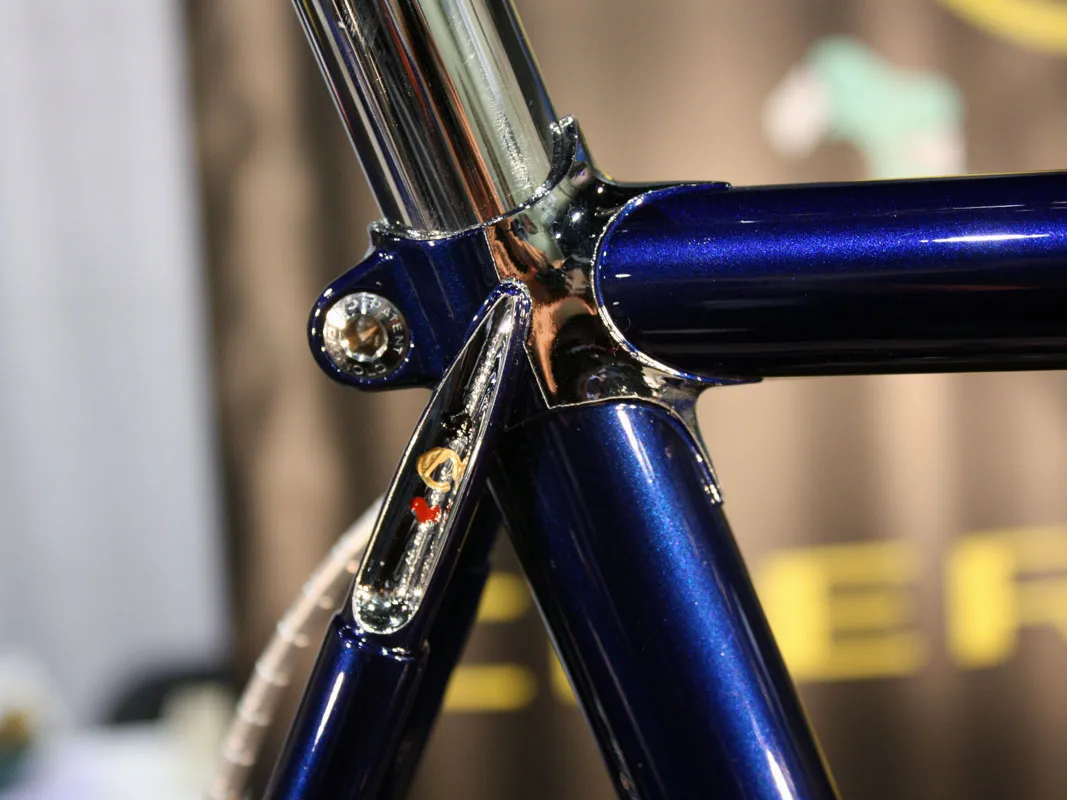Shimano's revolutionary Dura-Ace Di2 electronic drivetrain has been highly touted in racing circles for its remarkable shift performance. Now it looks like it's been accepted by the mostly non-racing crowd at the North American Handmade Bicycle Show too.
And that's not just because Shimano are now the show's title sponsors – technically making the official acronym now 'SNAHBS', not 'NAHBS'.
Though a bit more complex to set up than a conventional mechanical drivetrain, Di2's more flexible wiring options have allowed builders to be more creative in routing those connections without the usual constraints of housing stops and smooth, large-radius cable runs.
While some builders such as Vanilla Bicycles and Yipsan have stuck with more straightforward external setups, others such as Japanese builders Cherubim, California-based SyCip and Dave Wages of Ellis Cycles have opted for more elaborate internal routing – thus removing some of the usual mechanical distractions and directing more of the observer's attention towards the frame itself.
"Some people will walk through here and see all of these really unusual and unique kinds of bikes and then there's Shimano, which seems like such a mainstream thing," said Shimano's American press officer Devin Walton.
"Interestingly enough, [our presence here] has actually created a really deep relationship in the sense that we're bringing technology to the table that's allowing these people who are really craftsmen and artisans to be creative with what they're doing – especially when you look at things like Dura-Ace electronic and the ability it gives them to integrate cables and hide things and really streamline a bike."
Ellis Cycles
Wages' Di2-equipped Ellis (pictured above) was a study in elegant simplicity with the single control wire entering the frame through a sealed and brazed-on port on the down tube. The battery was mounted to a dedicated mount on the non-driveside chainstay and its cable was fed through a large opening in the bottom bracket shell (which serves double duty as a drain port).
Another exit point was positioned just below the front derailleur. Wages ran the rear derailleur wire through the normally sealed chainstay with an extra brazed-on loop on the dropout for support, and the finished package overall was exceptionally clean.
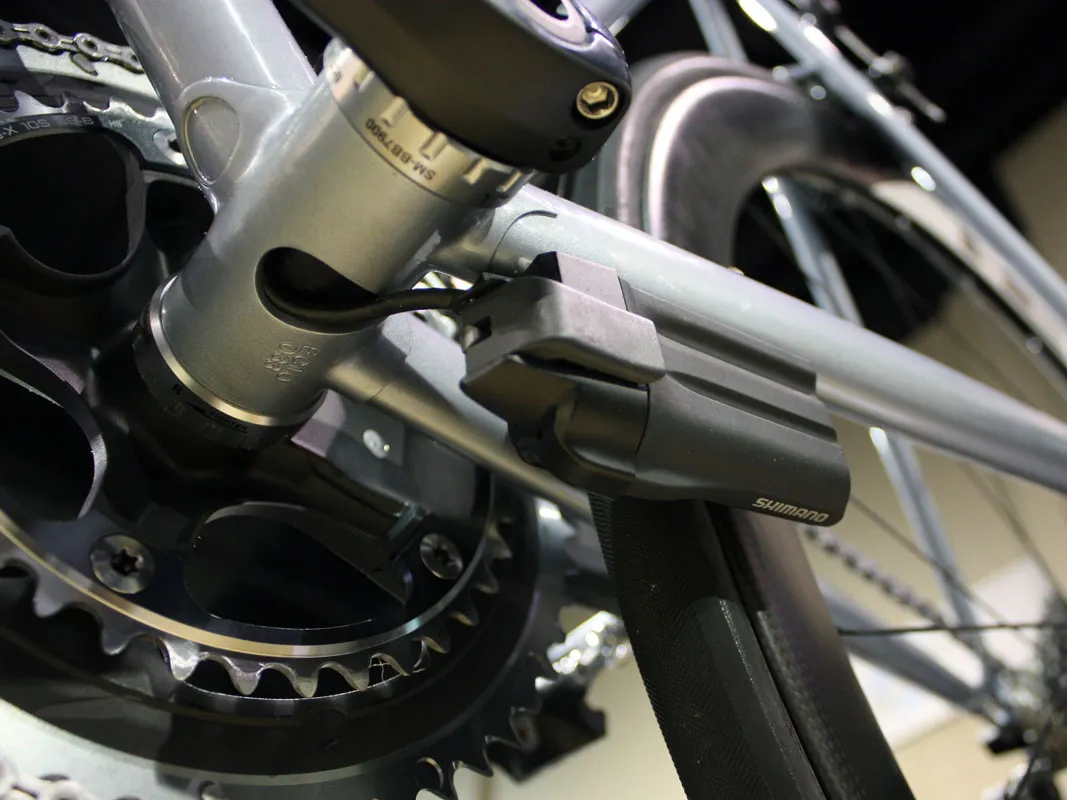
The battery on this Di2 Ellis is mounted beneath the chainstay using dedicated braze-ons

A small loop added on the dropout helps guide the Di2 wire
SyCip
SyCip's Di2-equipped creation used a similar routing configuration to the Ellis but instead of tucking the battery underneath the chainstay, Jeremy Sycip instead chose to highlight its location atop the bottom bracket area with a custom leather cover branded with the SyCip logo – making it an addition to the craftsmanship rather than something that might distract from it. Similar branding was also found on the custom stitched leather handlebar wrap and saddle.
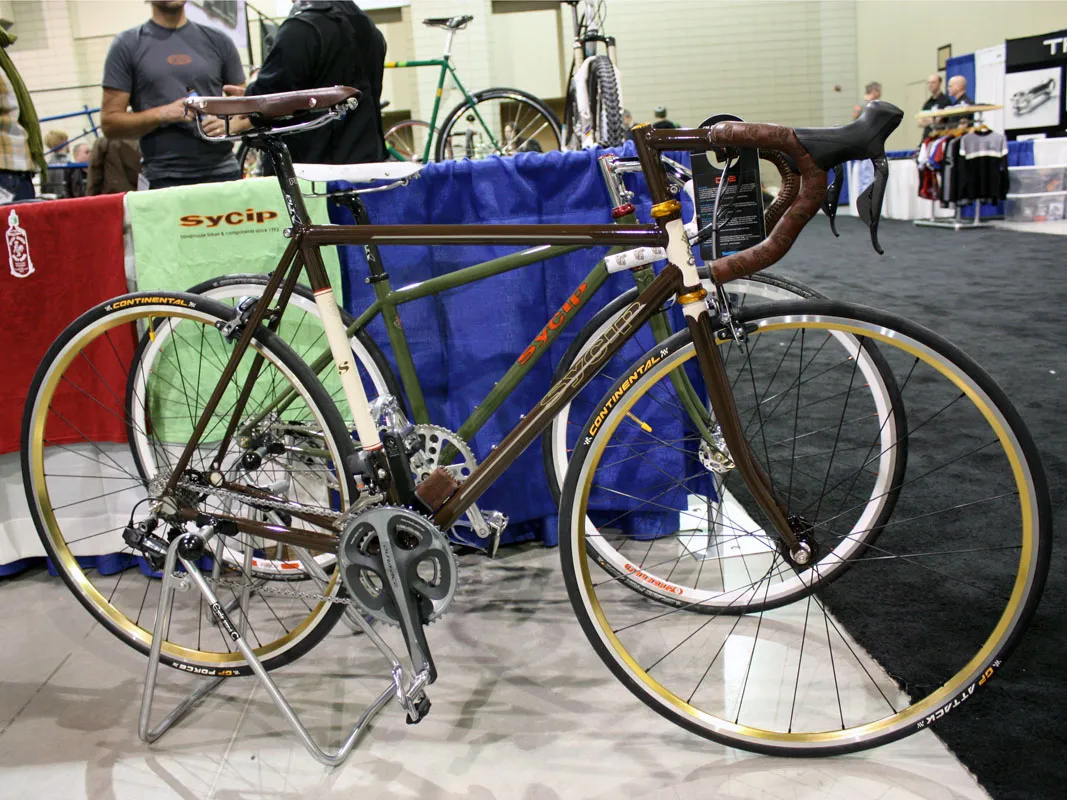
SyCip also chose to build a bike with Shimano's new Dura-Ace Di2 electronic group
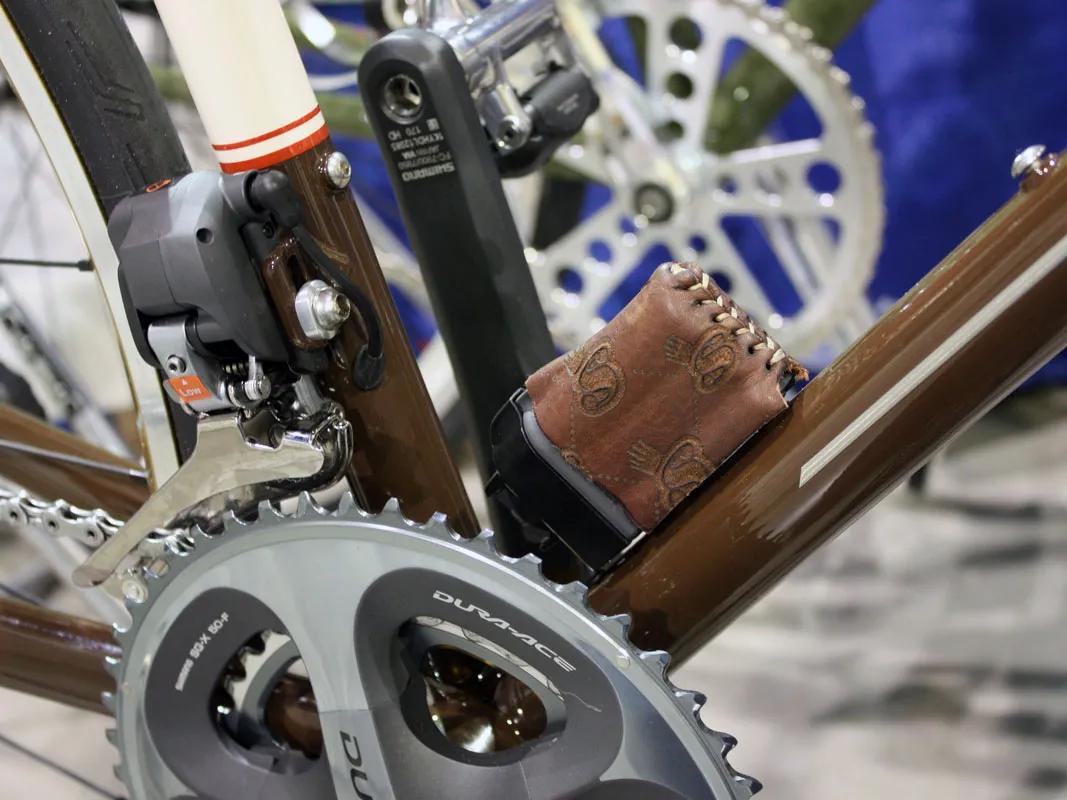
Rather than hide the battery away, they mounted it up top and added a leather cover
Cherubim
Cherubim's Di2 installation was notably more elaborate with the brazed-on cable entry and exit points being more ornate both in terms of shape and colouring, and a chainstay-mounted rear brake allowing for a more symmetrical internal routing arrangement overall.
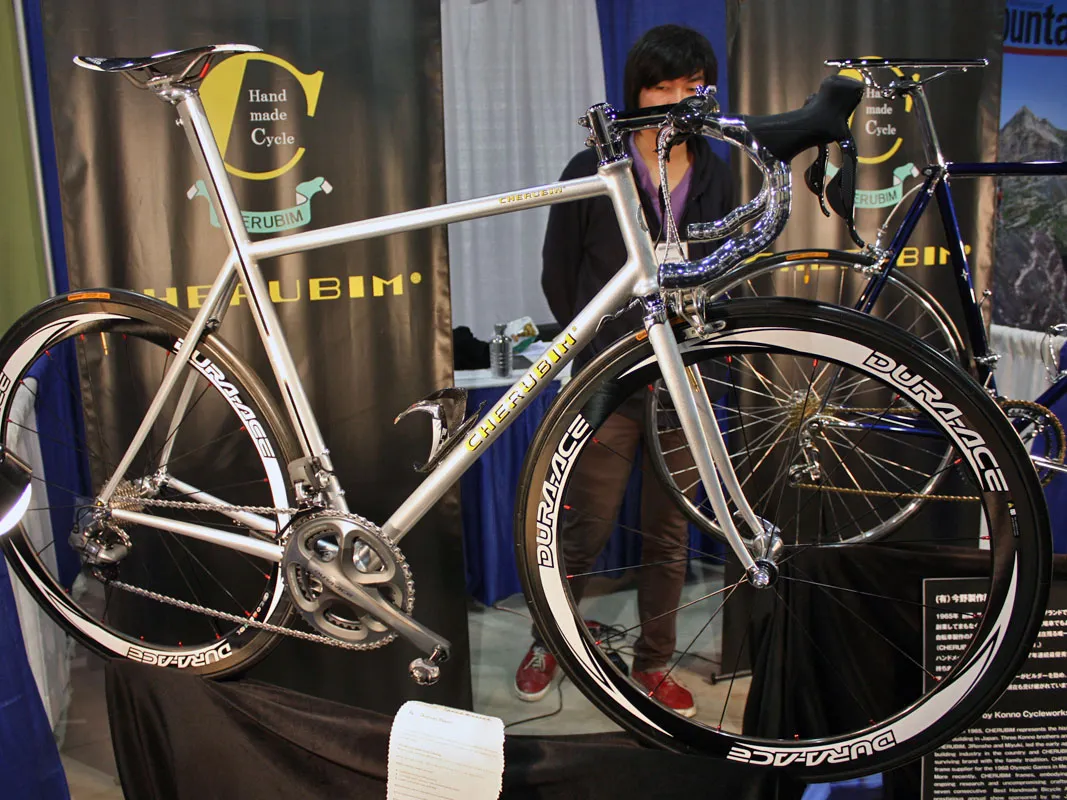
Cherubim's steel road racer was as much fine art as it was high-tech
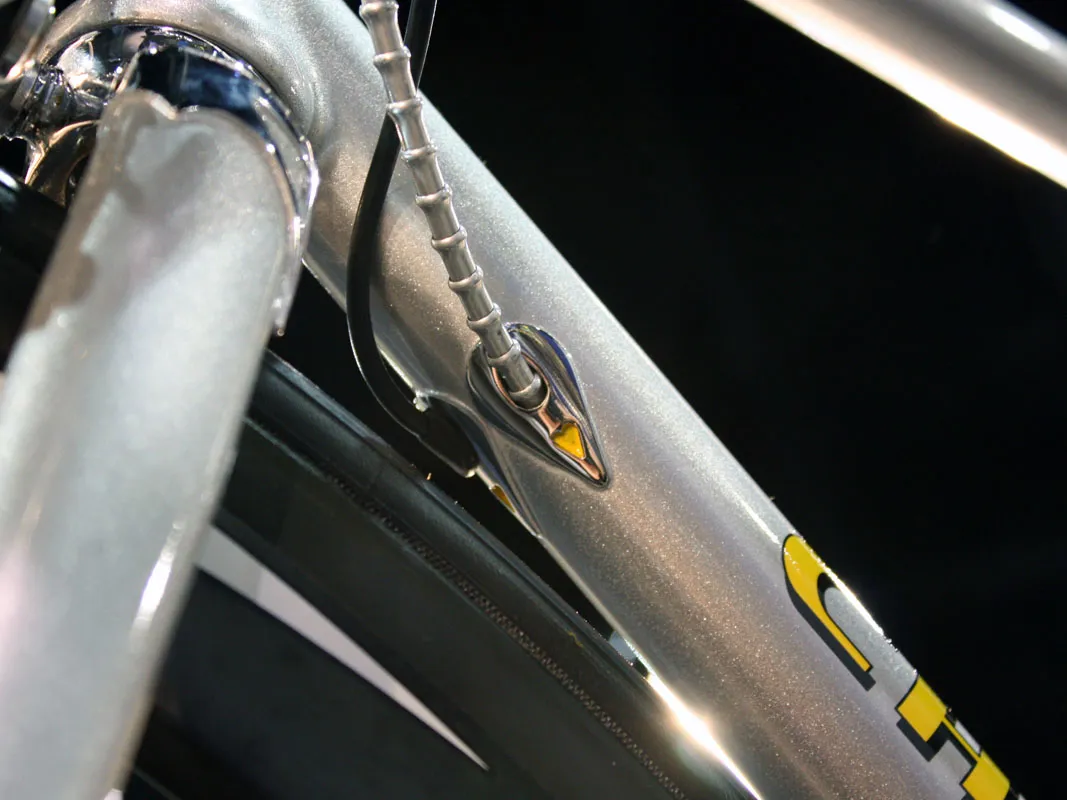
Ornate entry ports for the Di2 wire and rear brake cable are brazed to the down tube
Though each of the builders using Di2 at SNAHBS came up with their own routing solution, Shimano are helping to facilitate the creative process with specific installation kits.
"We have internal-specific cable kits right now with the biggest difference being they don't have the same kind of junction under the bottom bracket as far as the wiring goes and then they're also set up so that they don't clank around inside of the frame," Walton said.
"There have definitely been inquiries from builders about the ability to just plug something into the frame. It's a neat thought and obviously we listen to that sort of thing. It's just that we have to see if there's enough uniformity to be able to move that way in the future."
